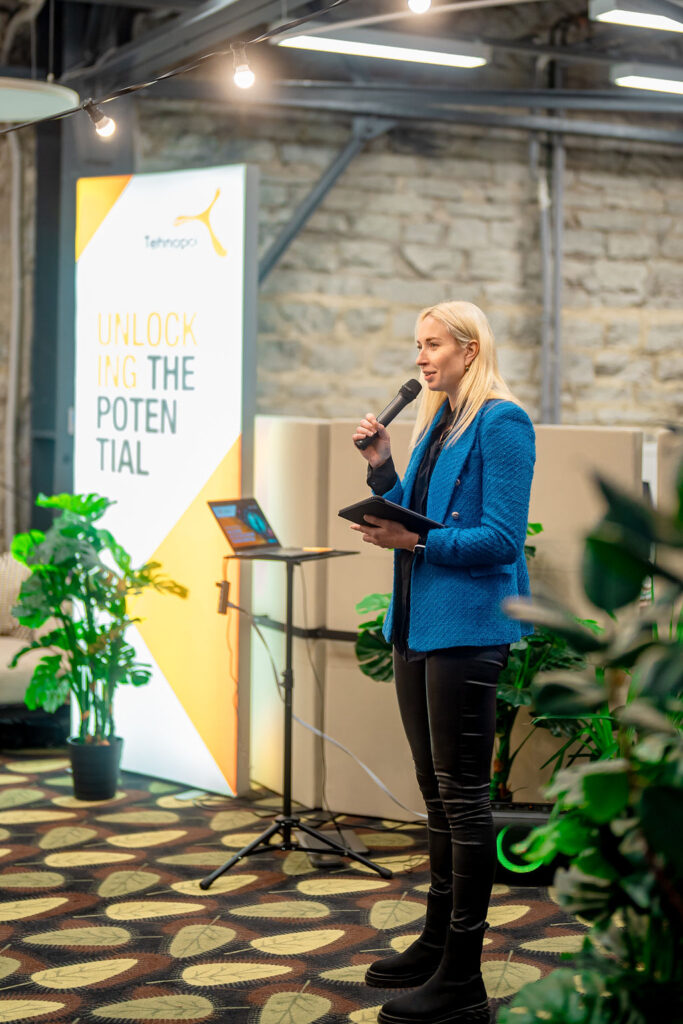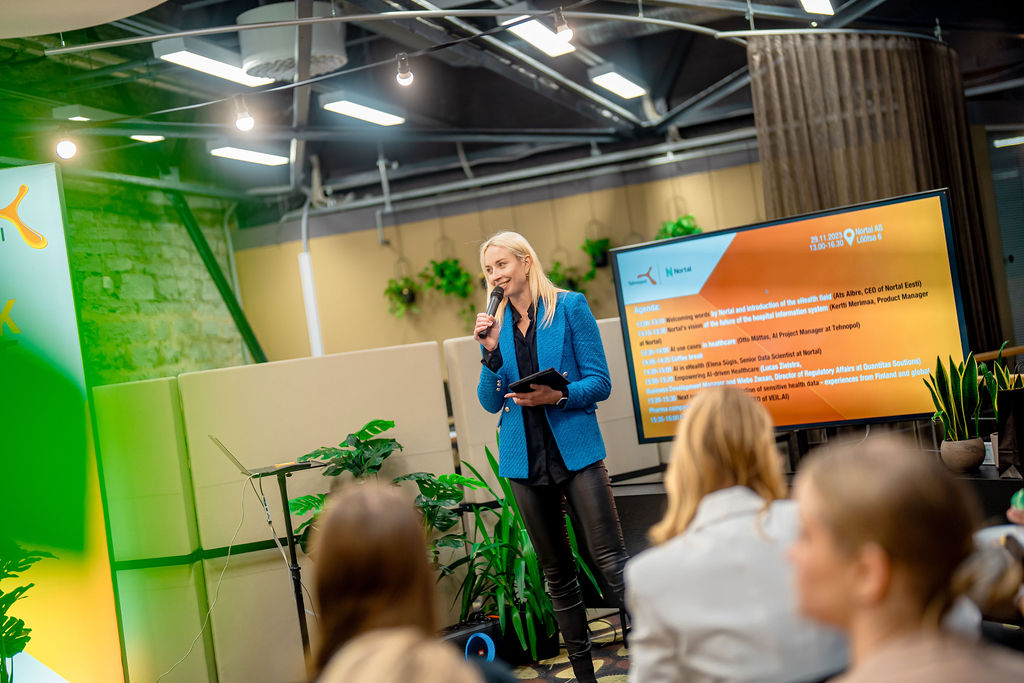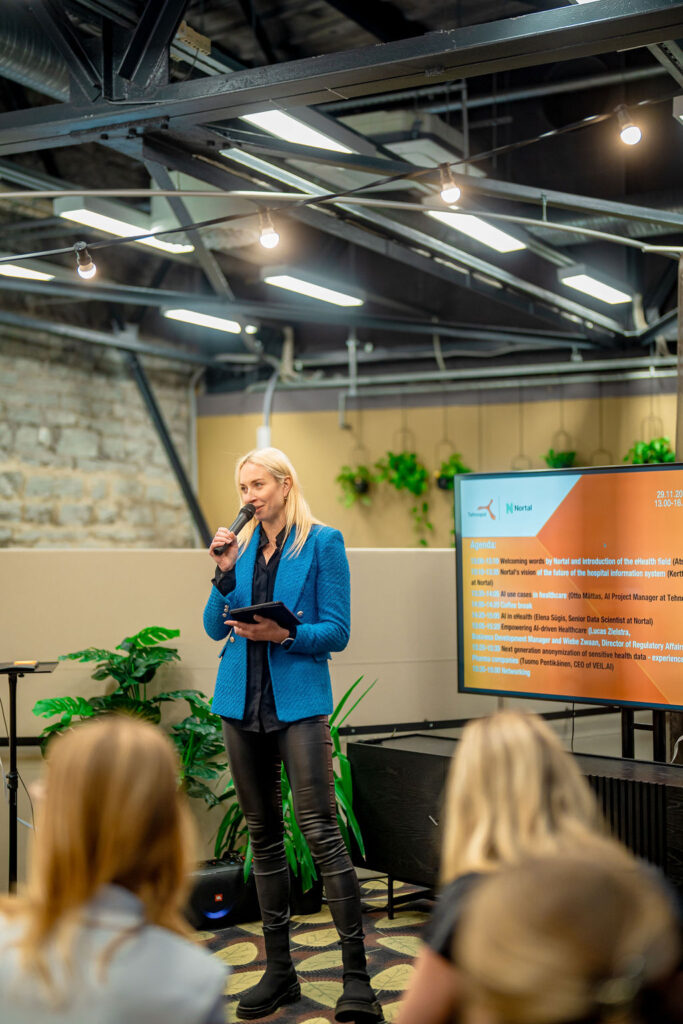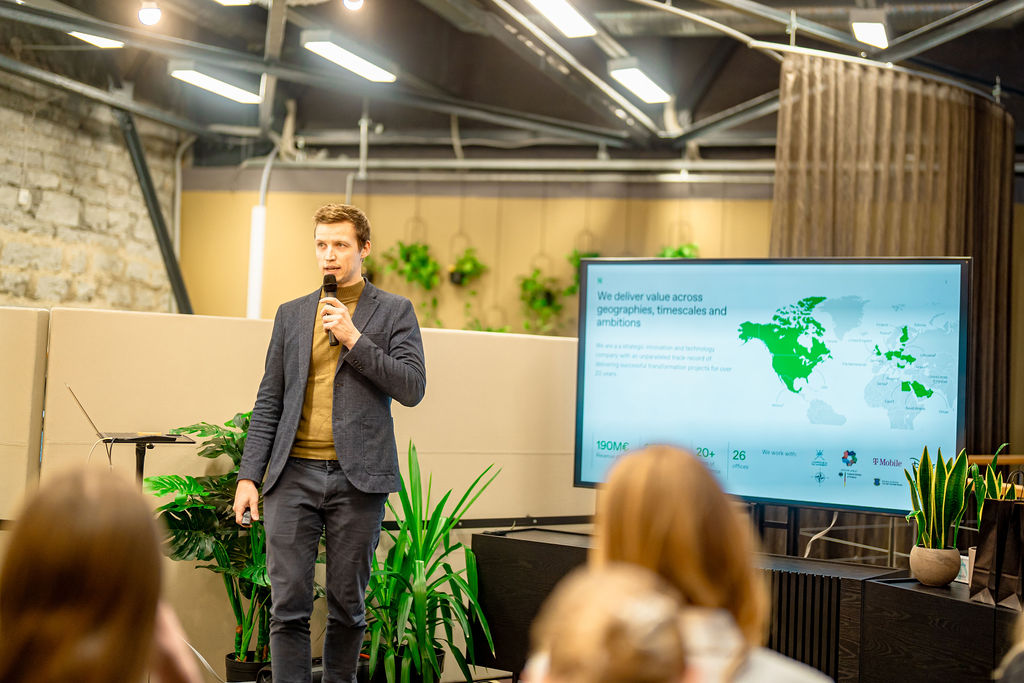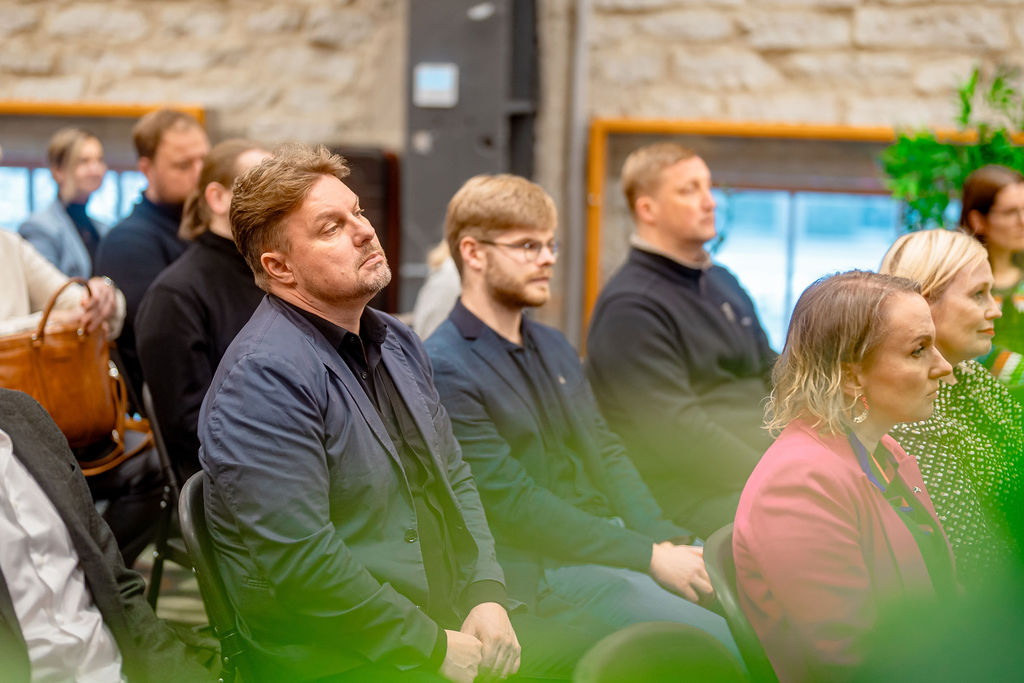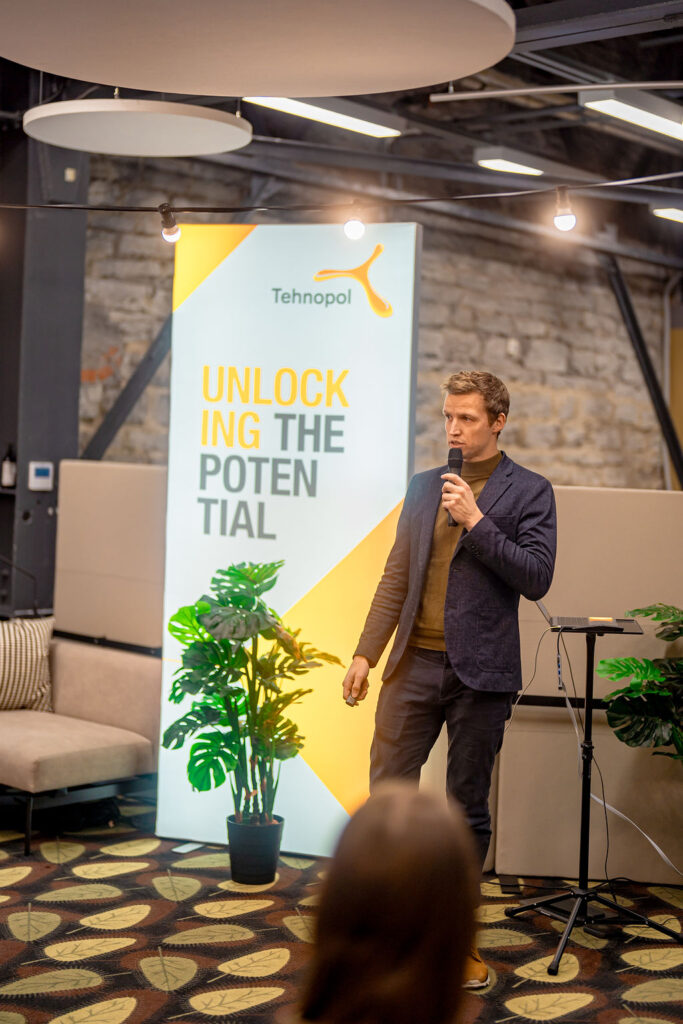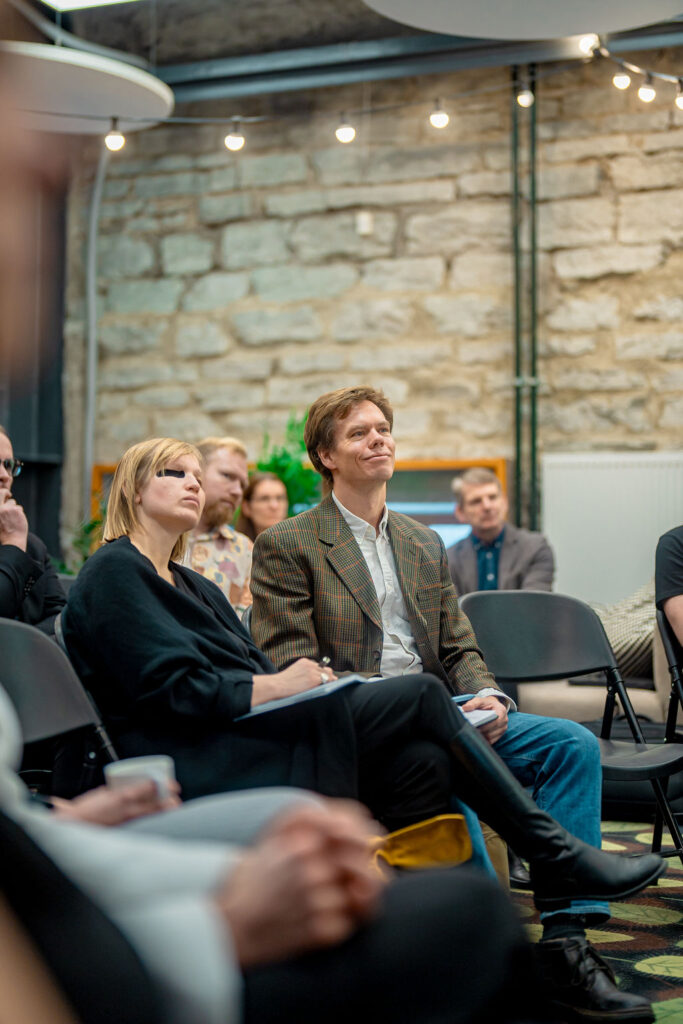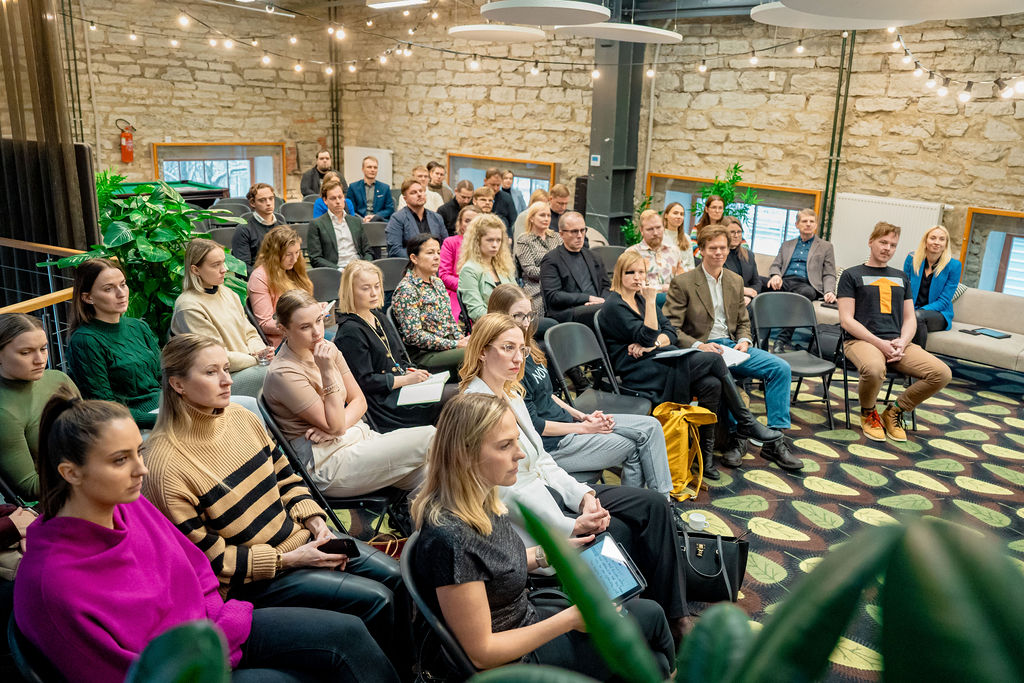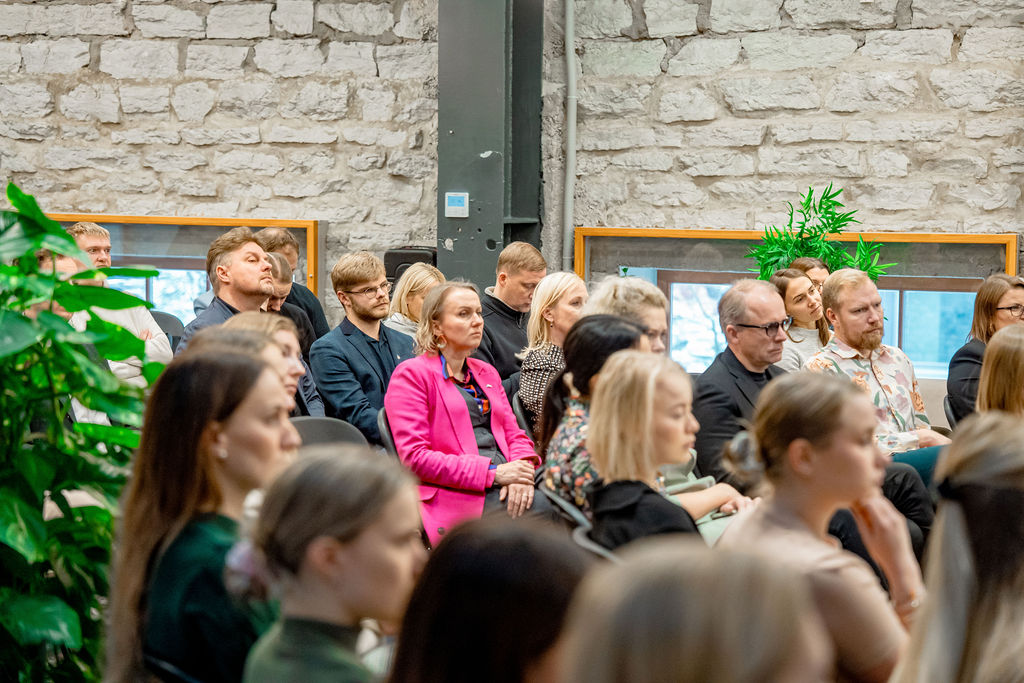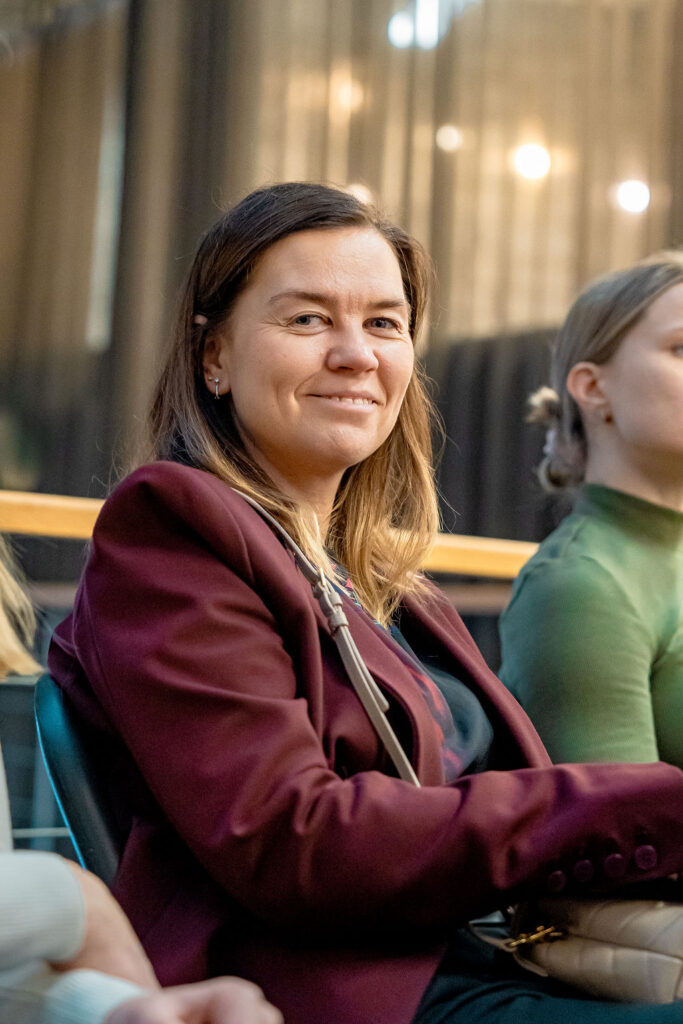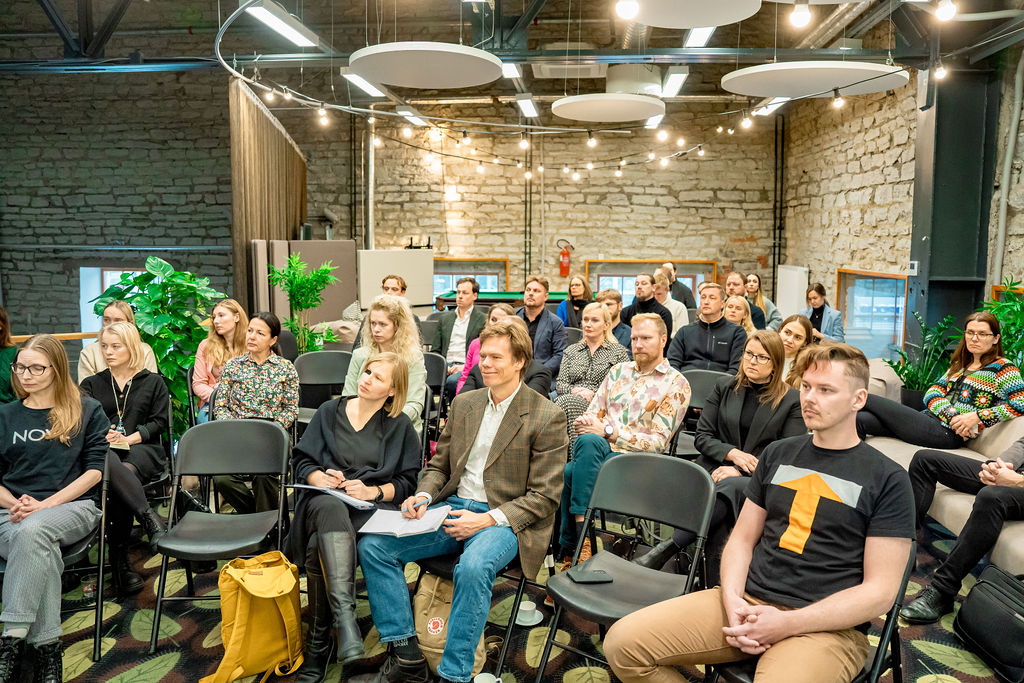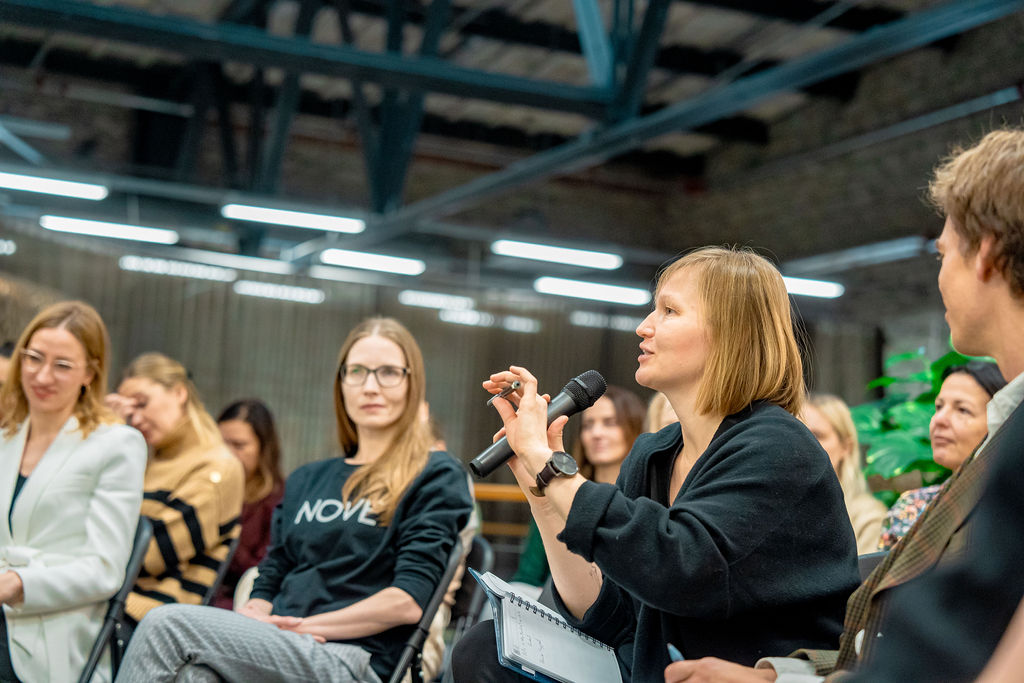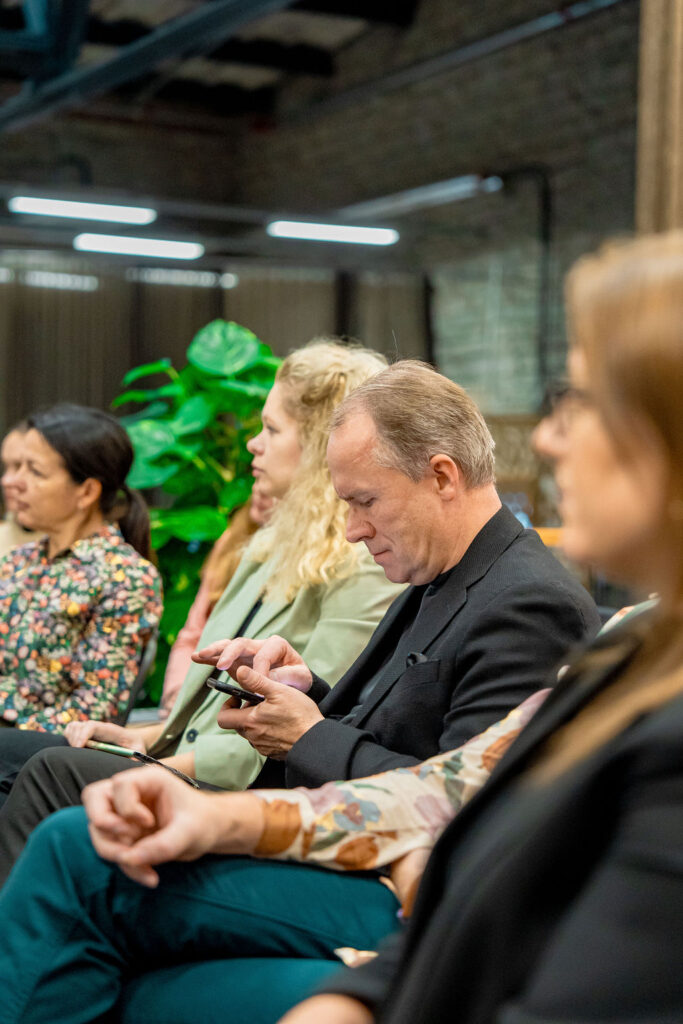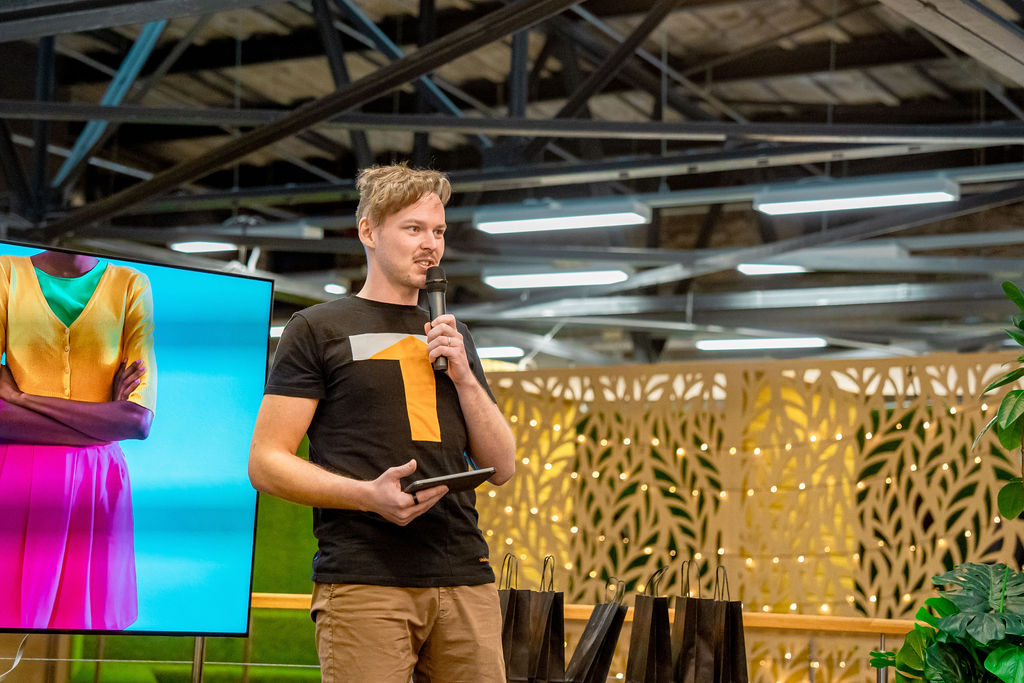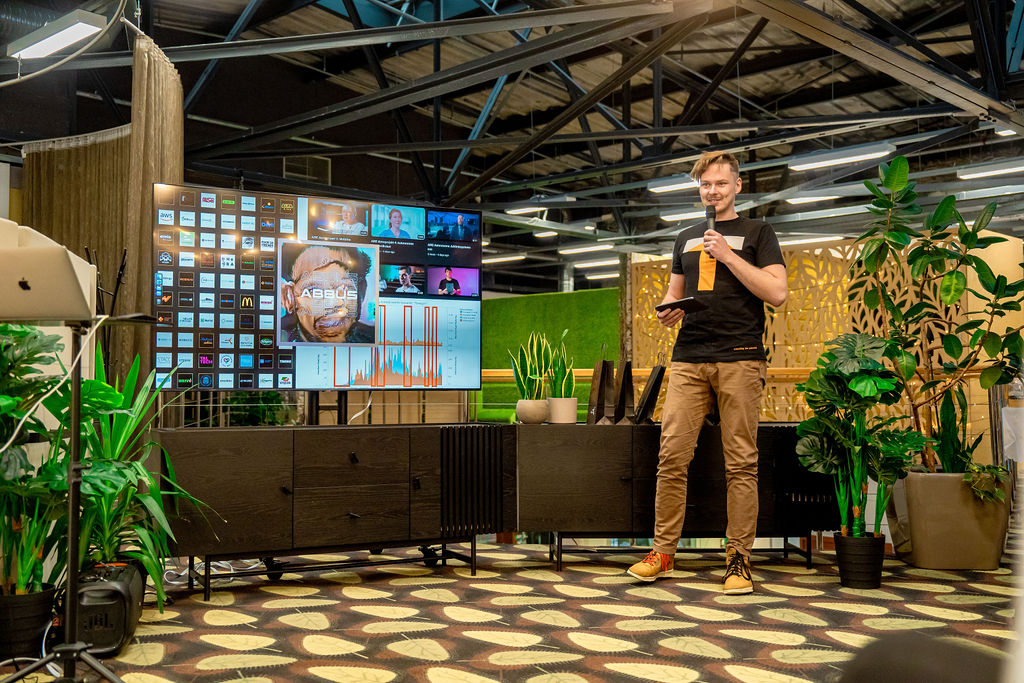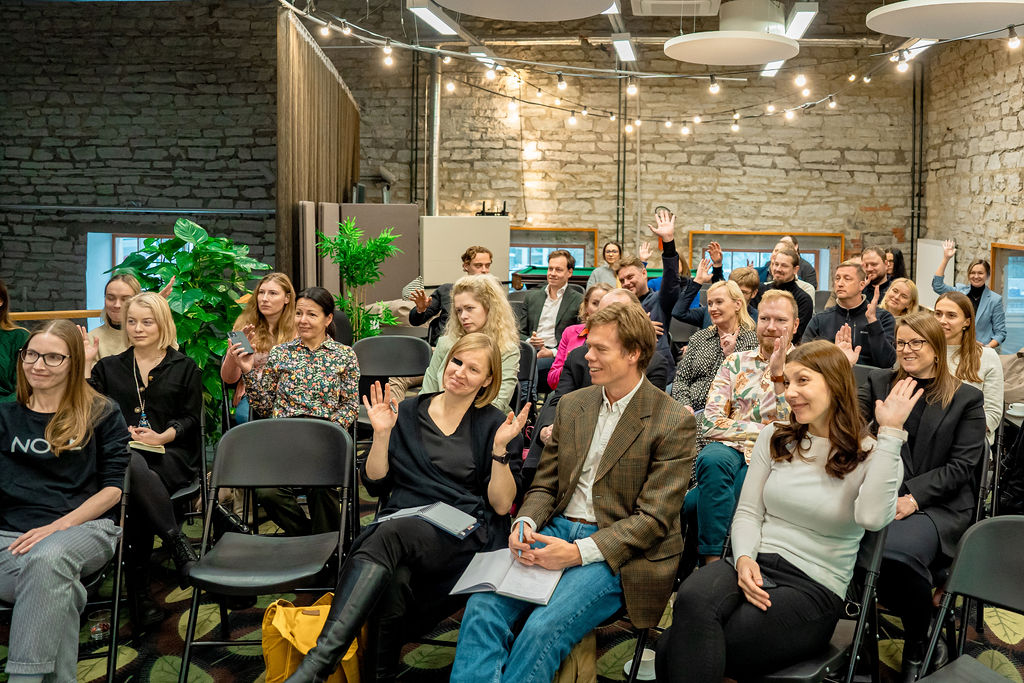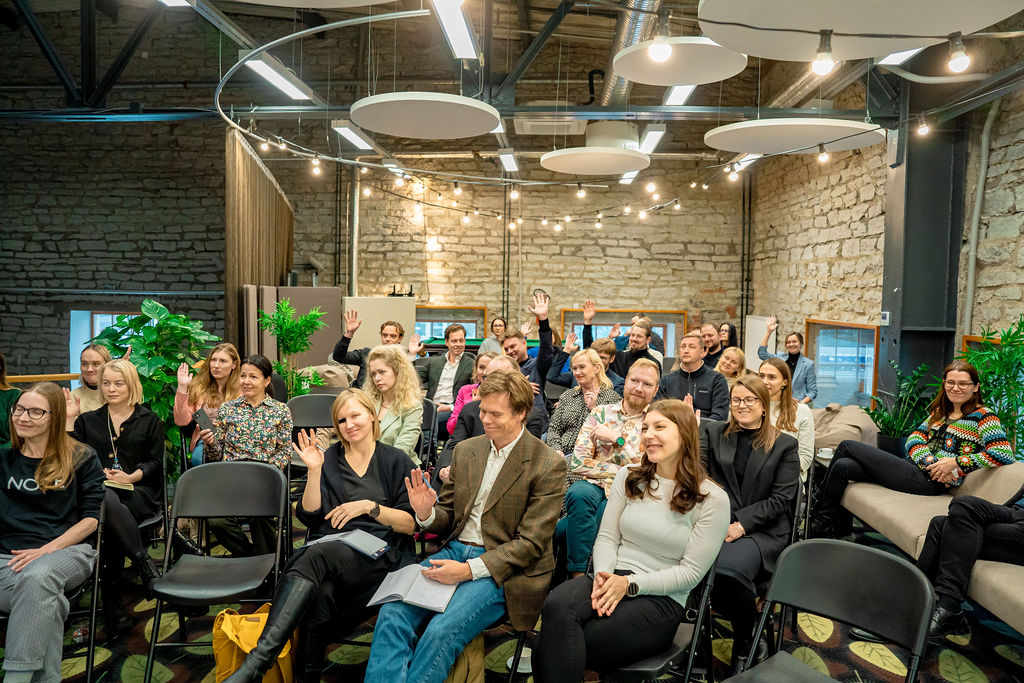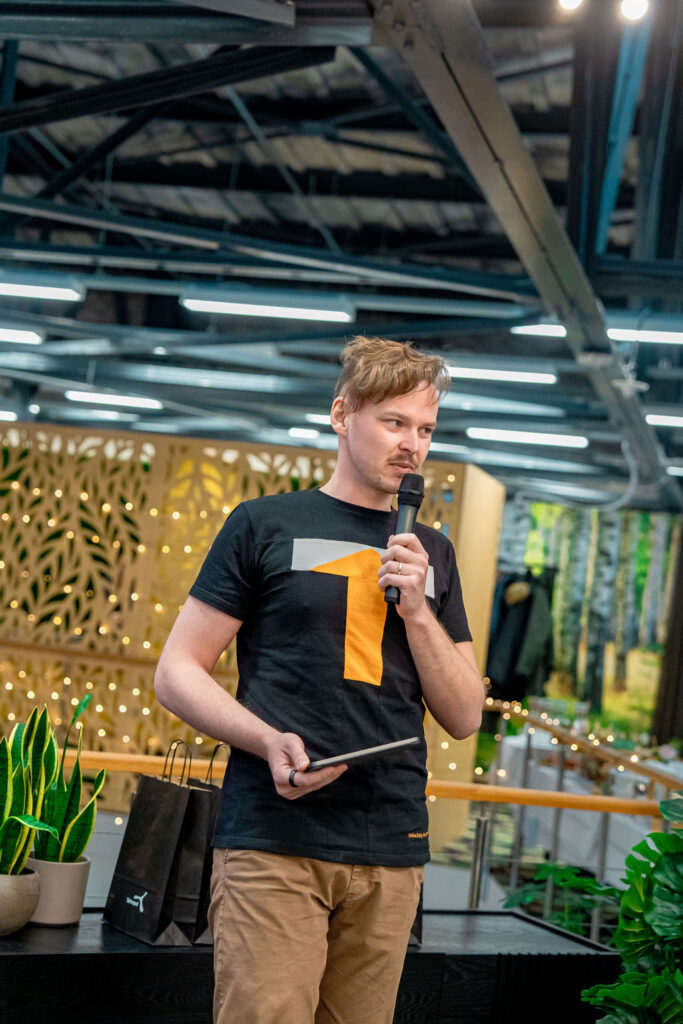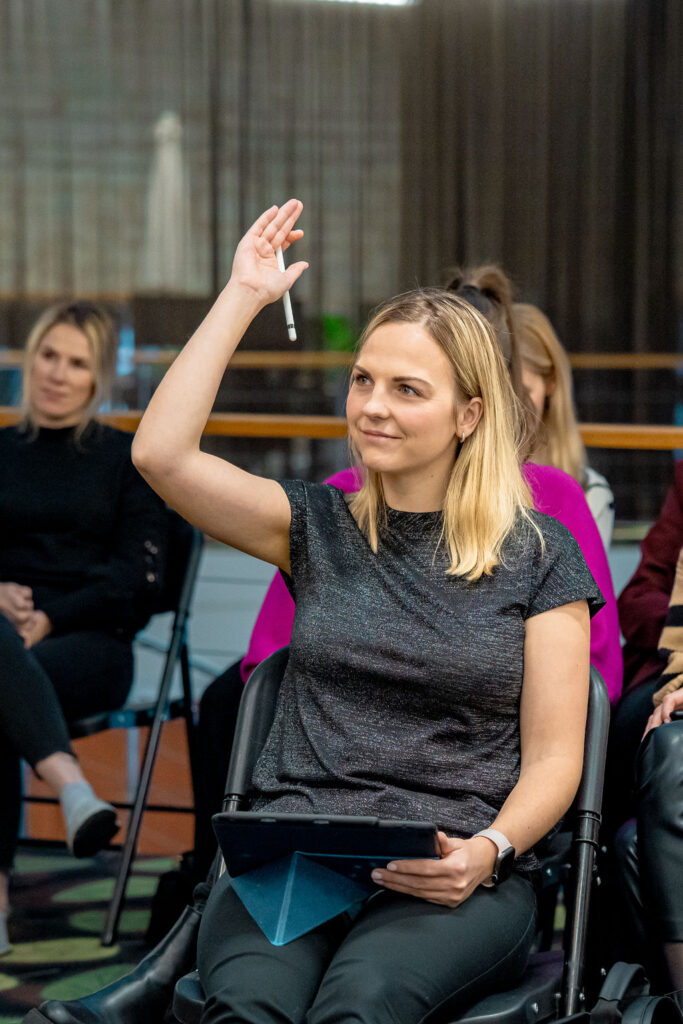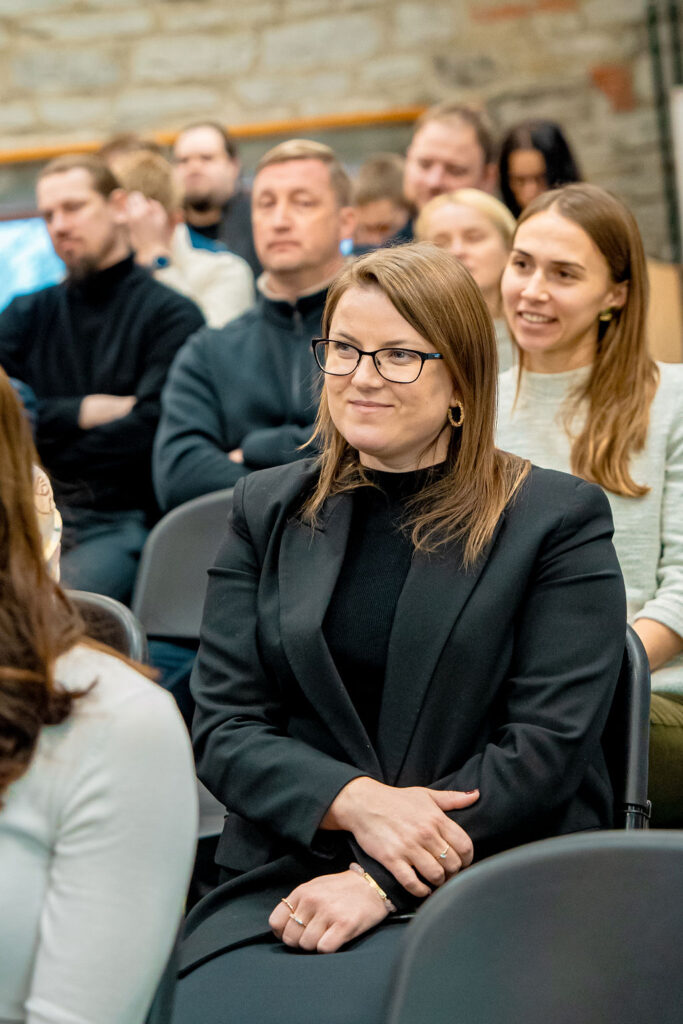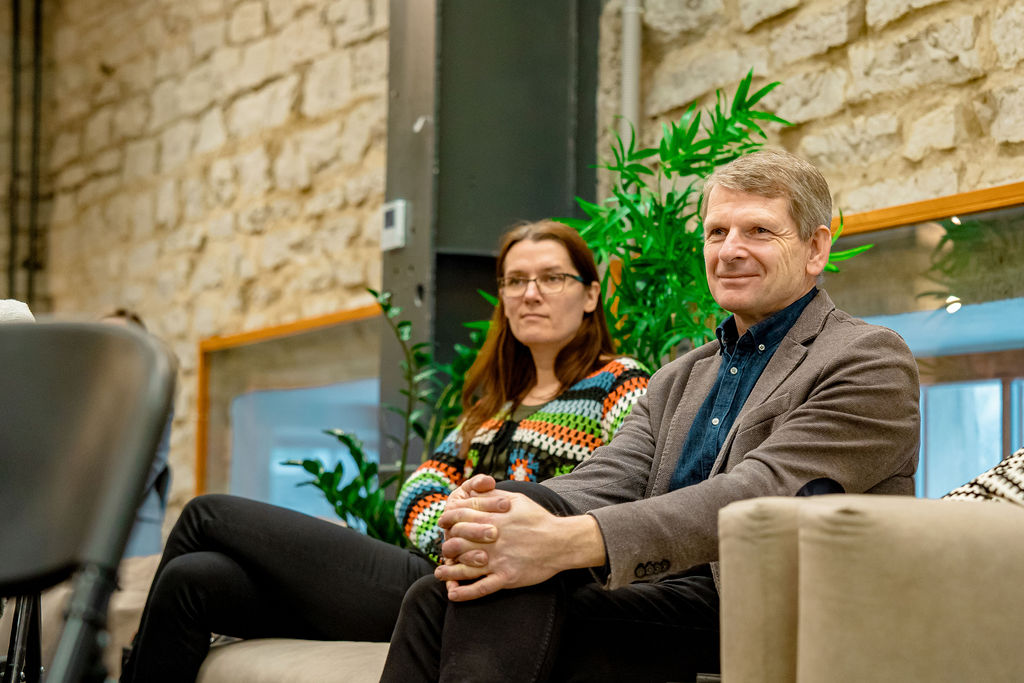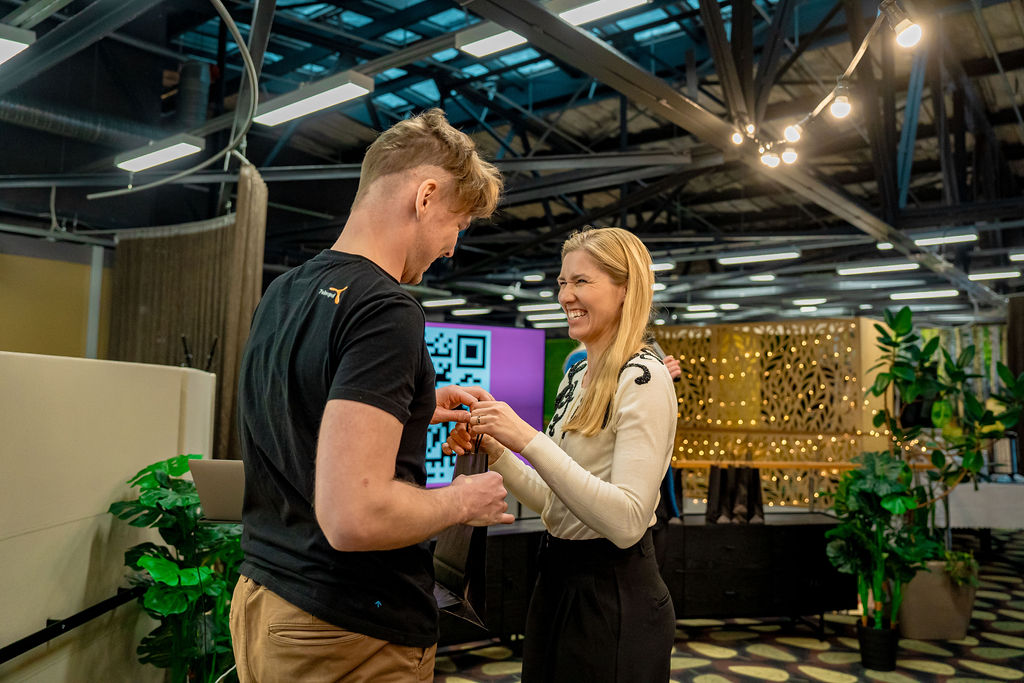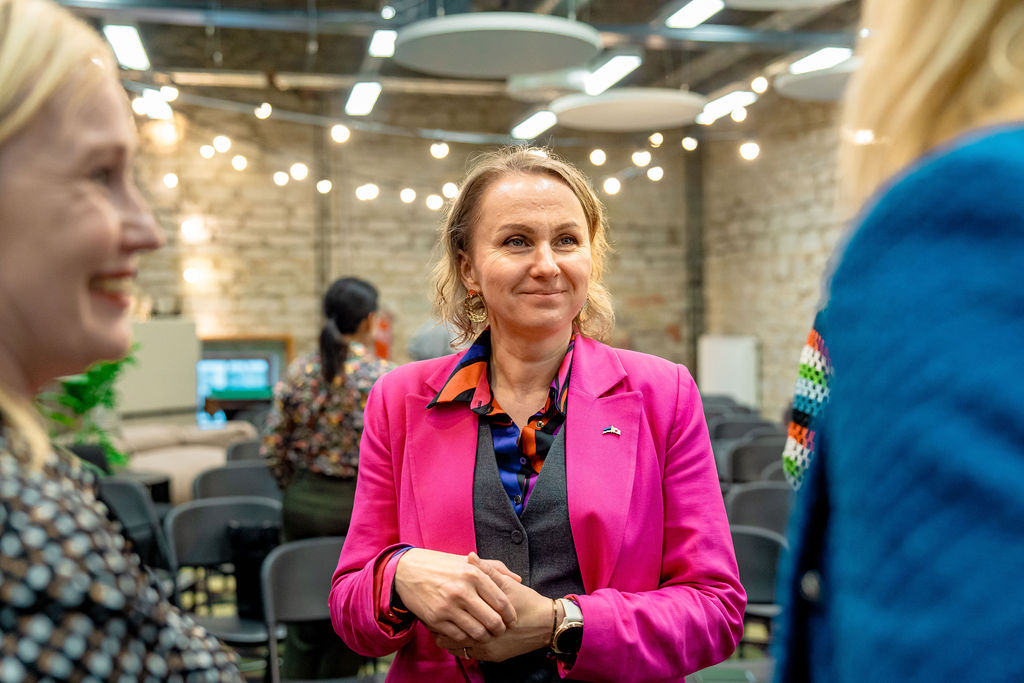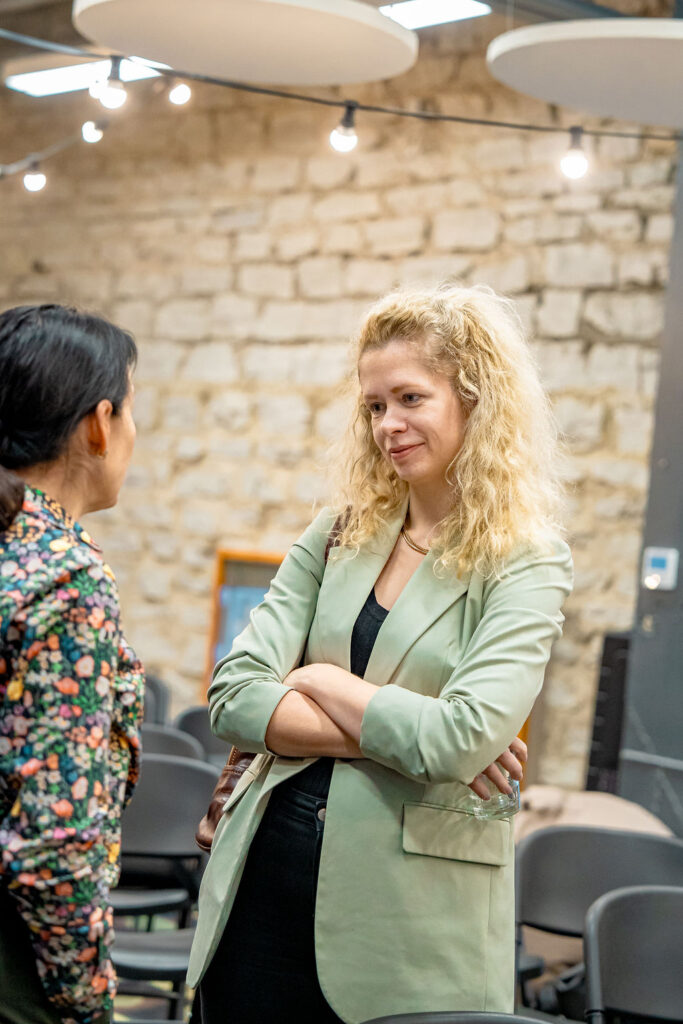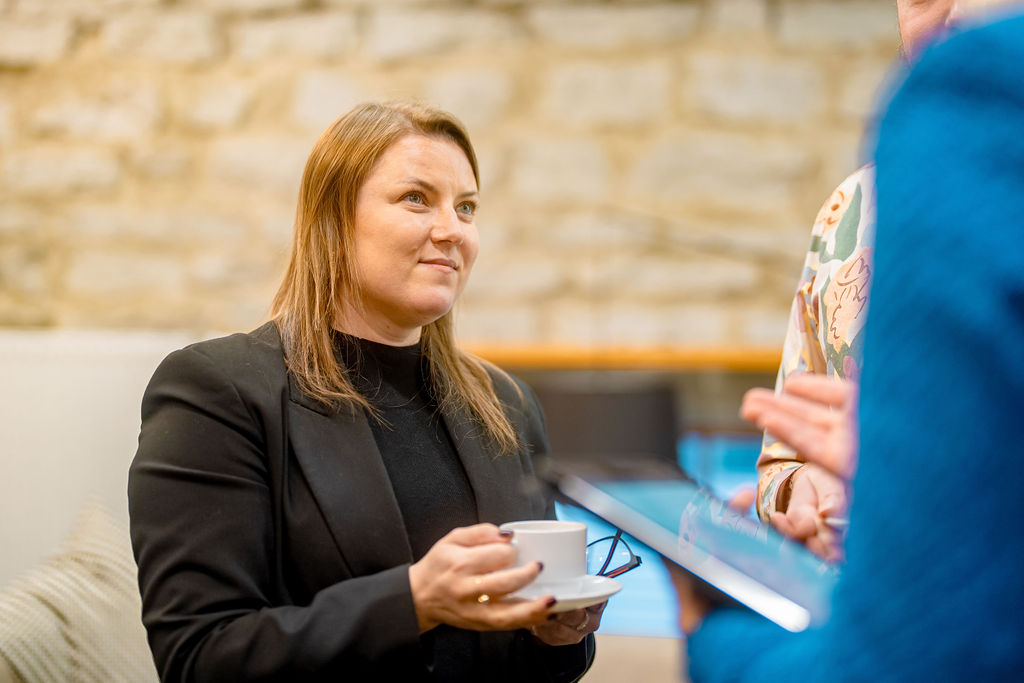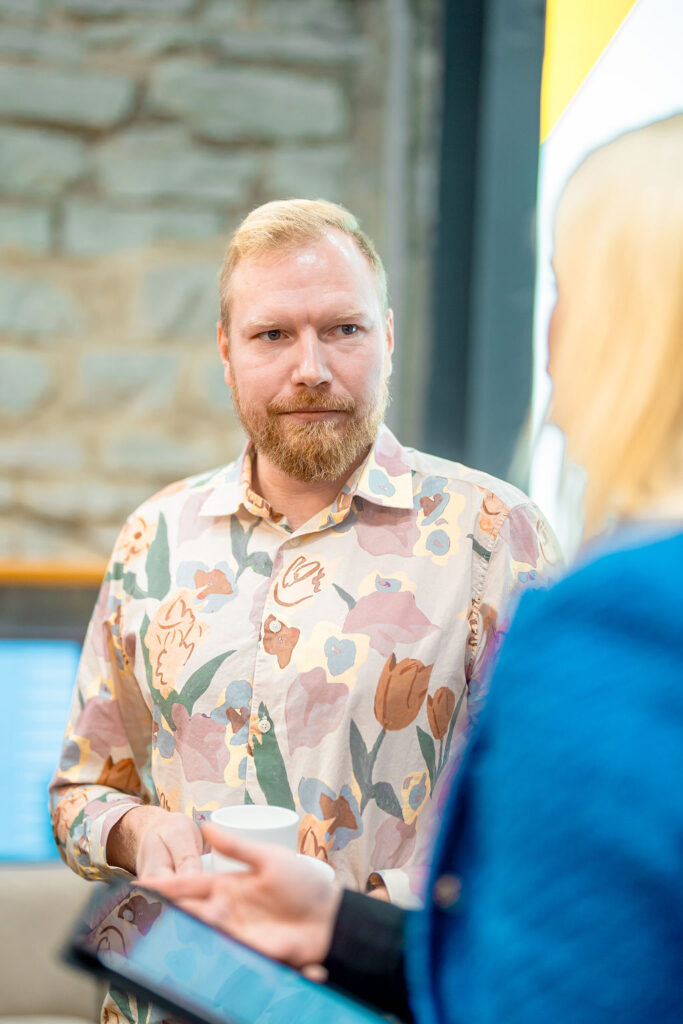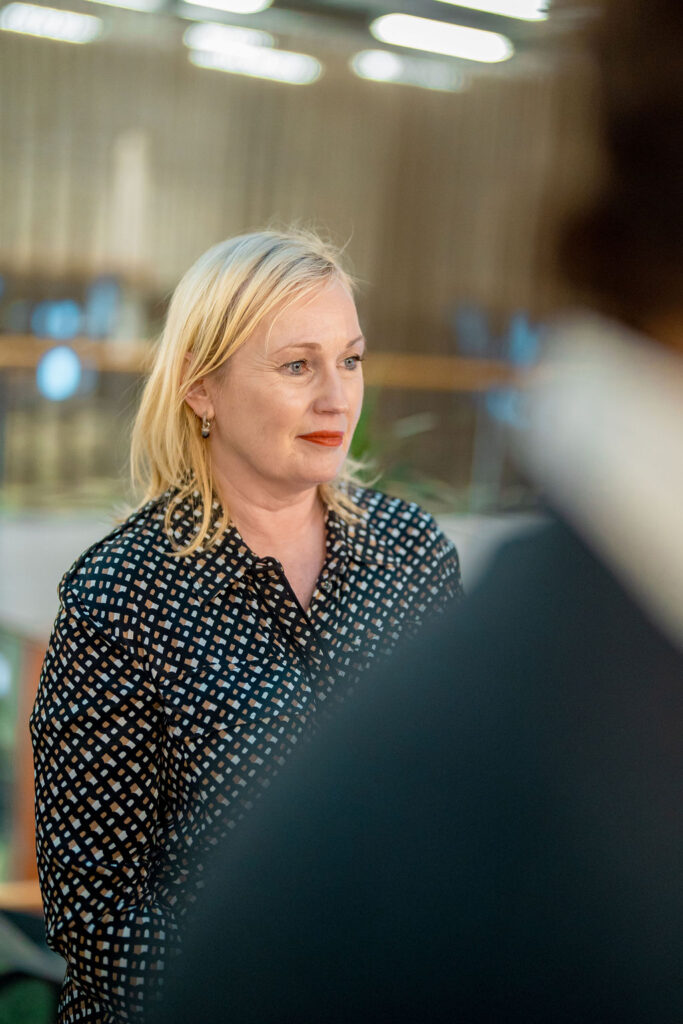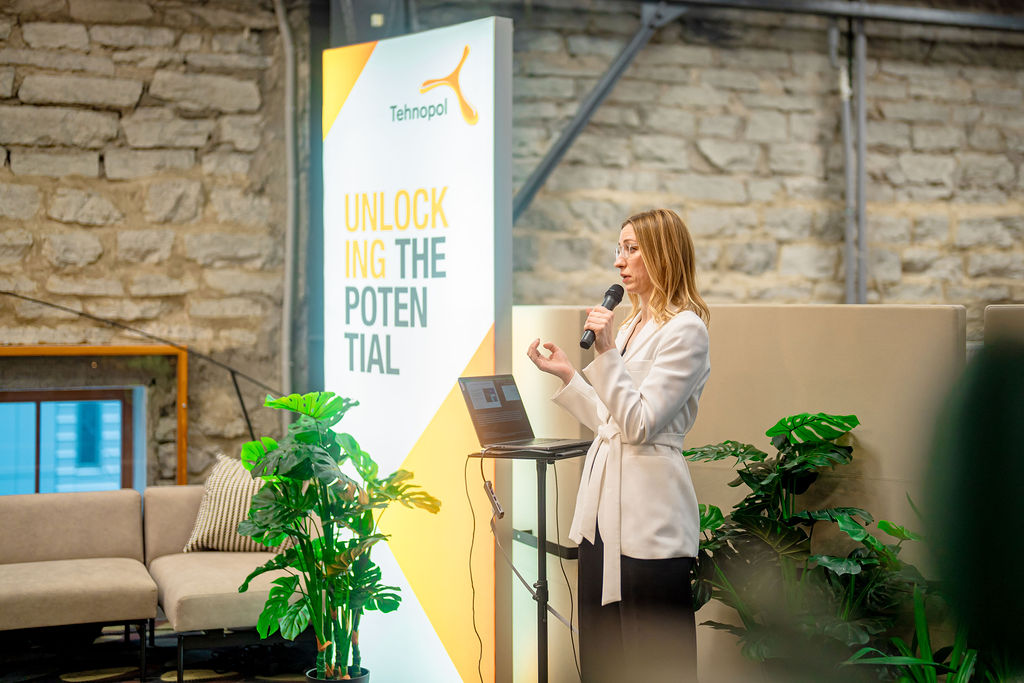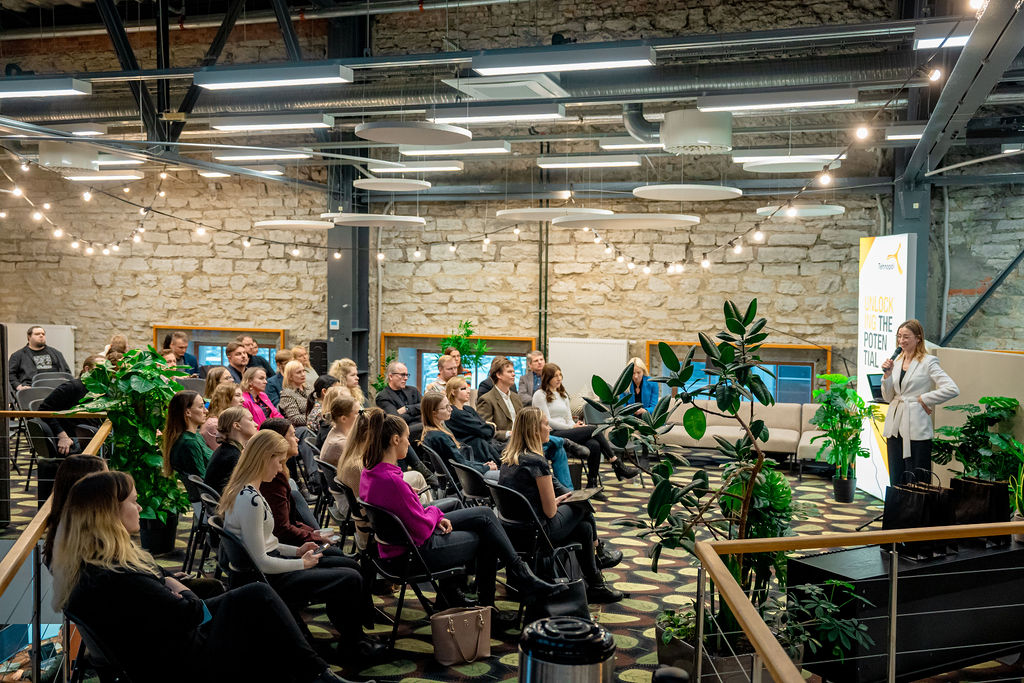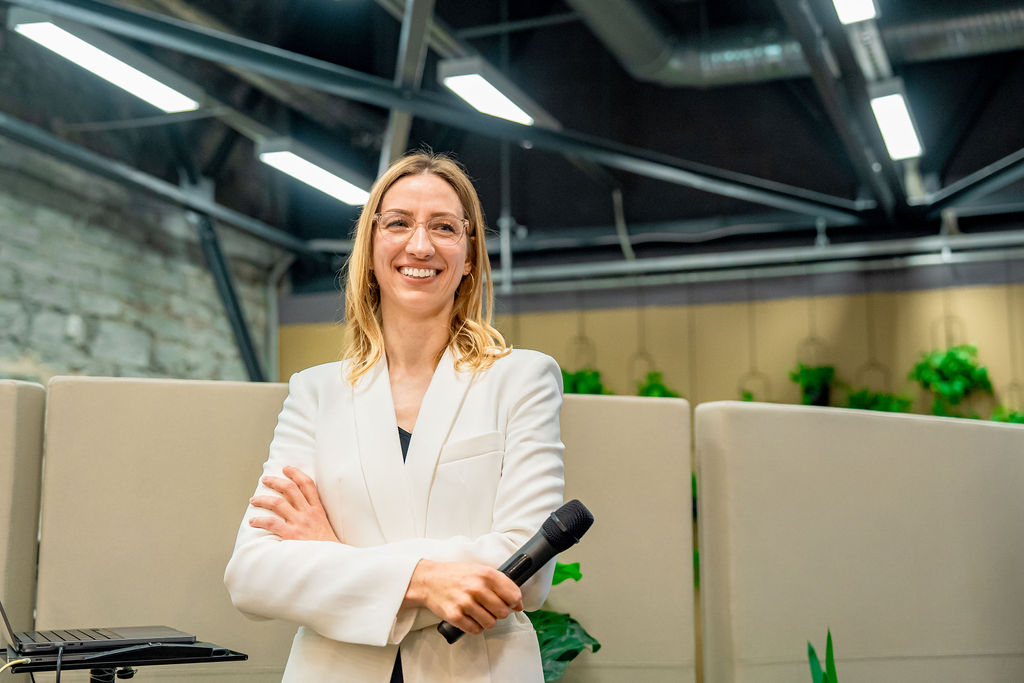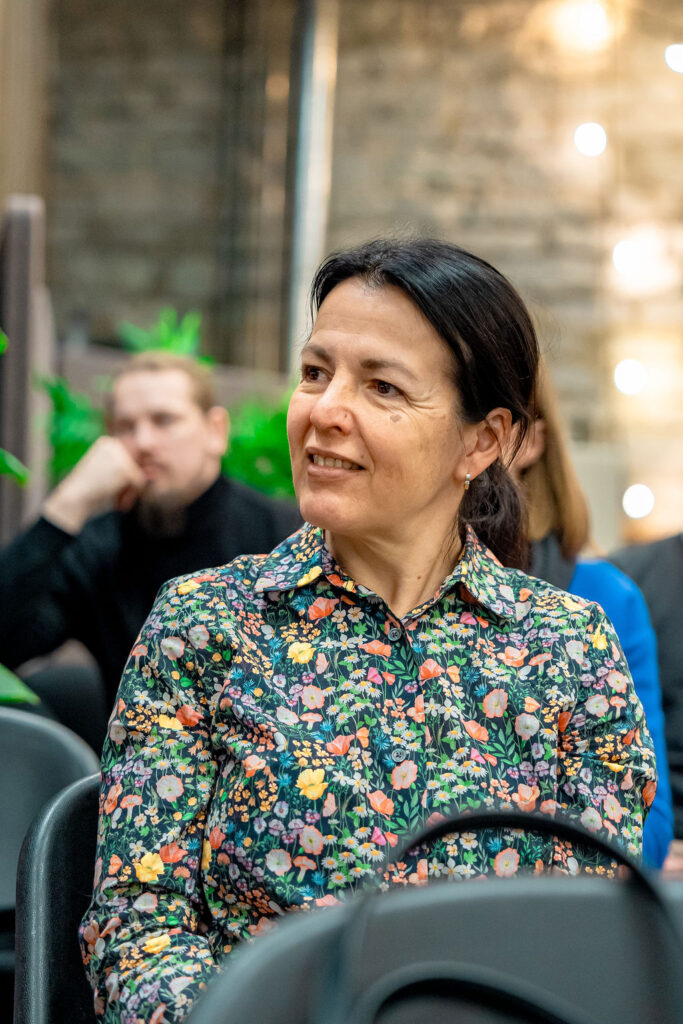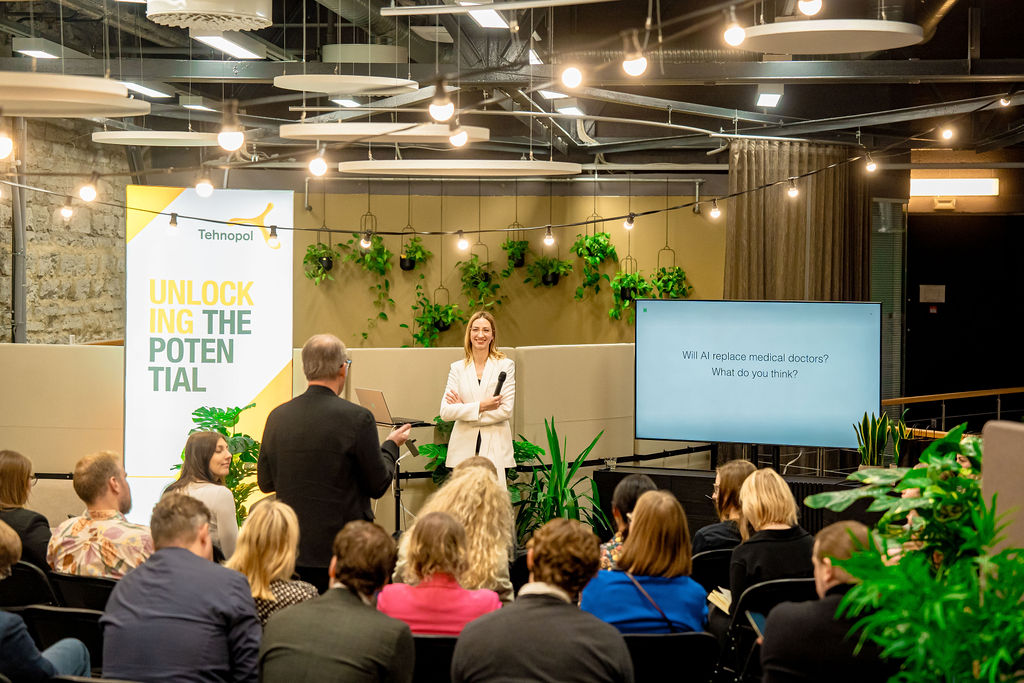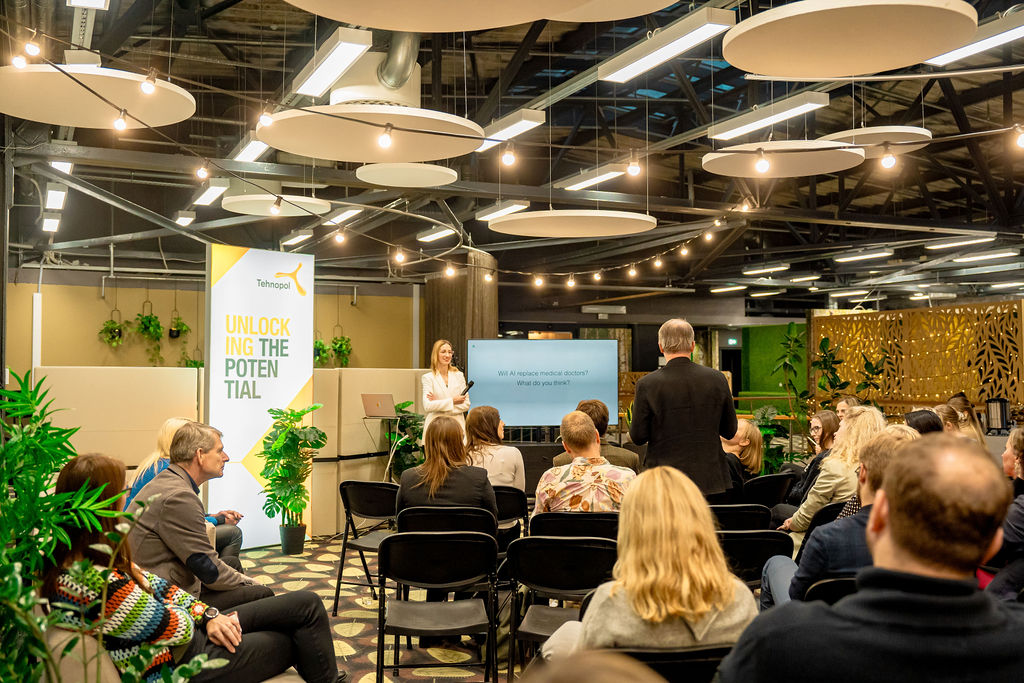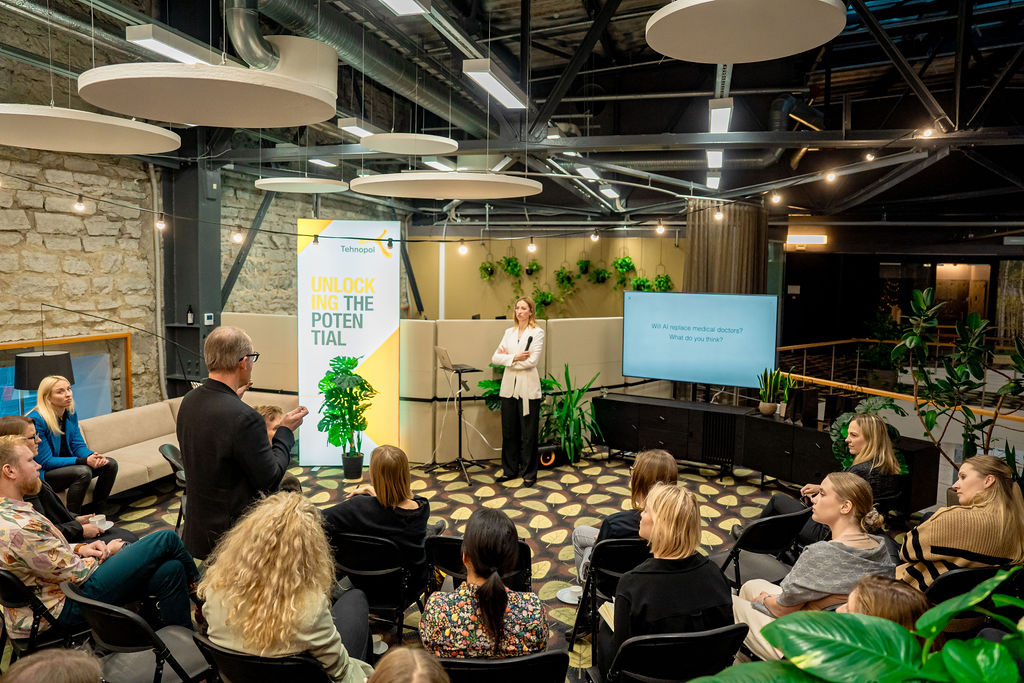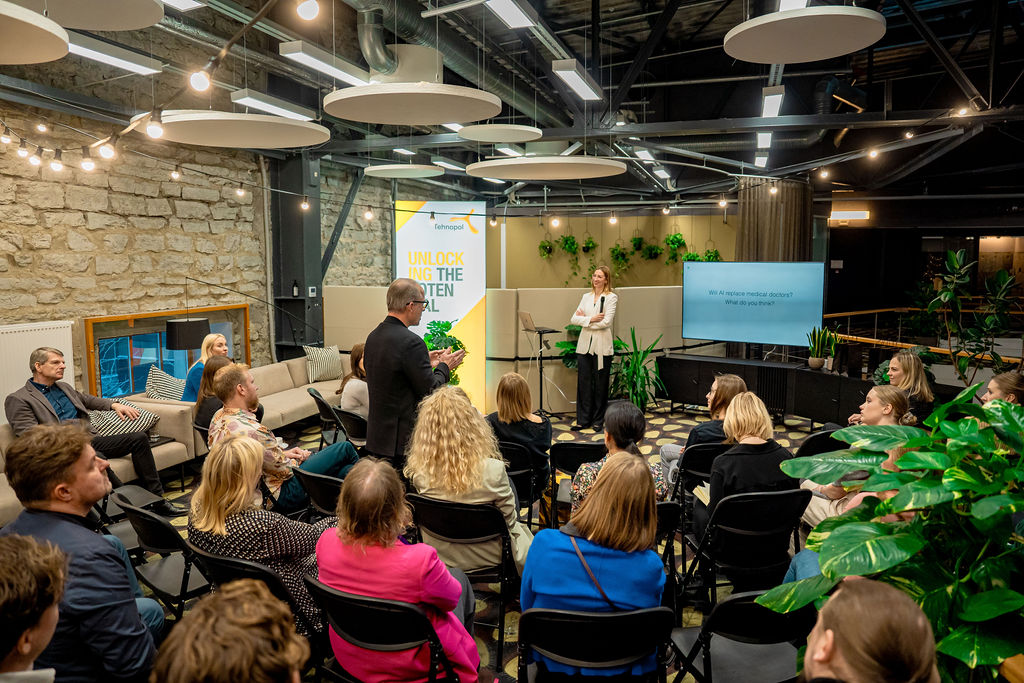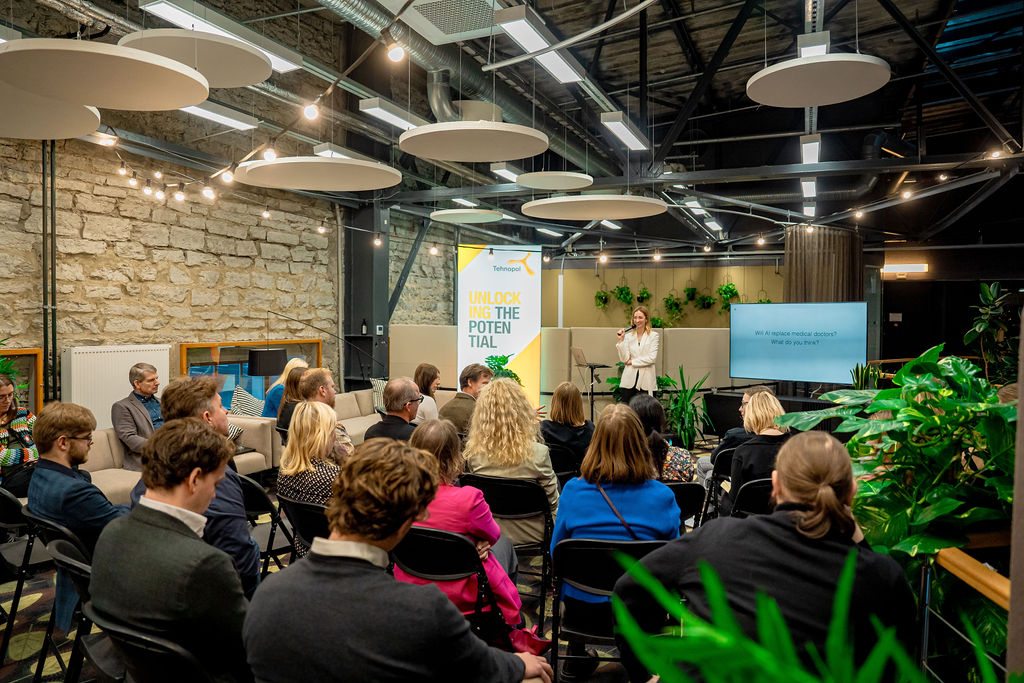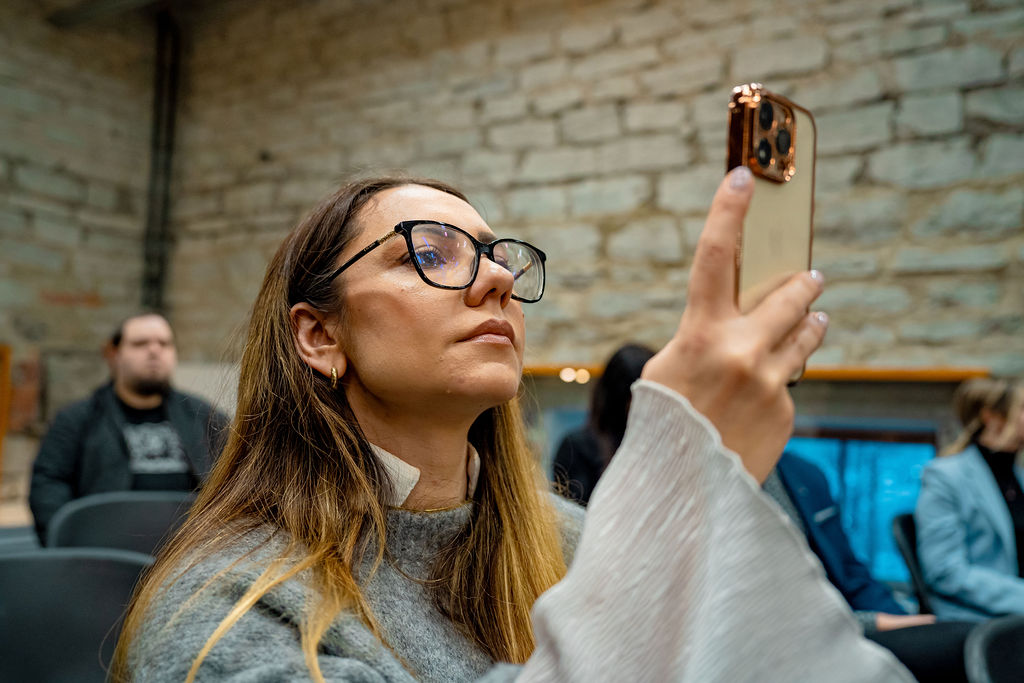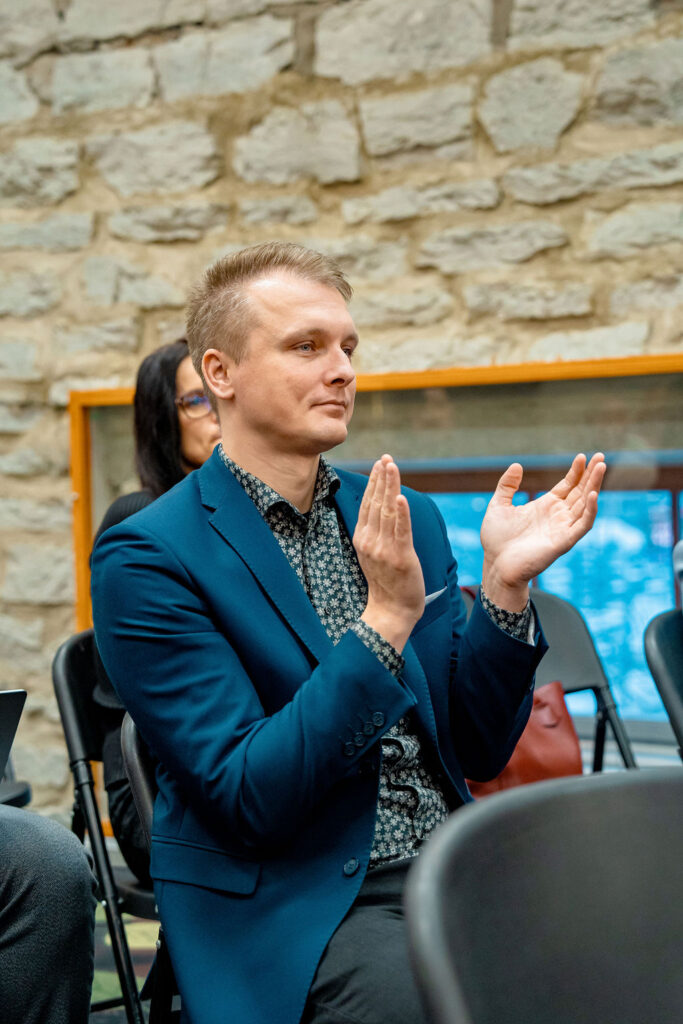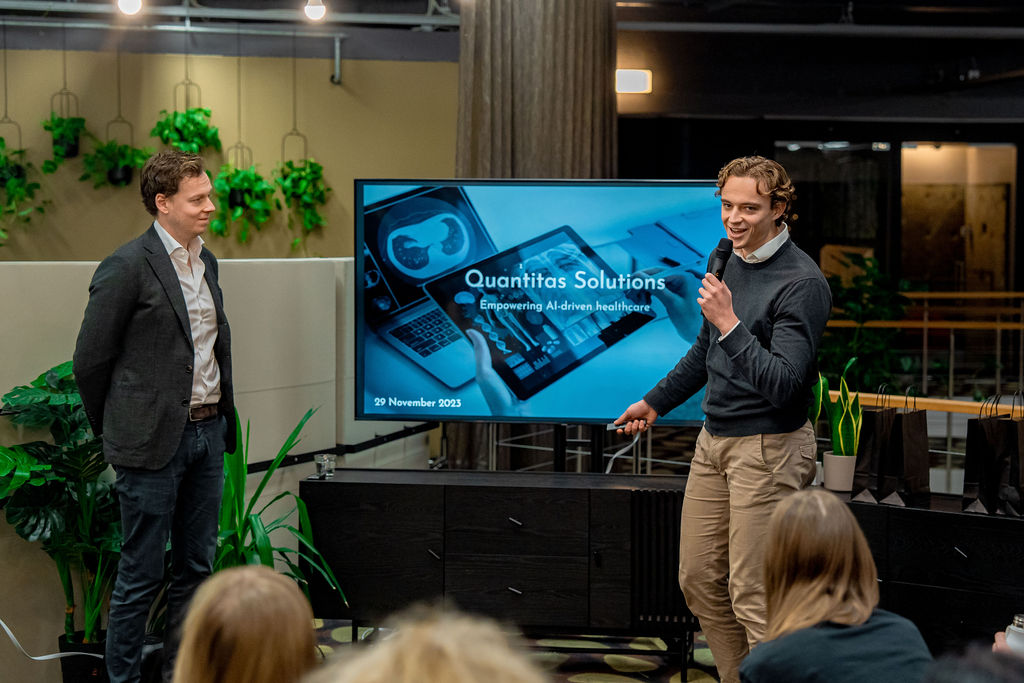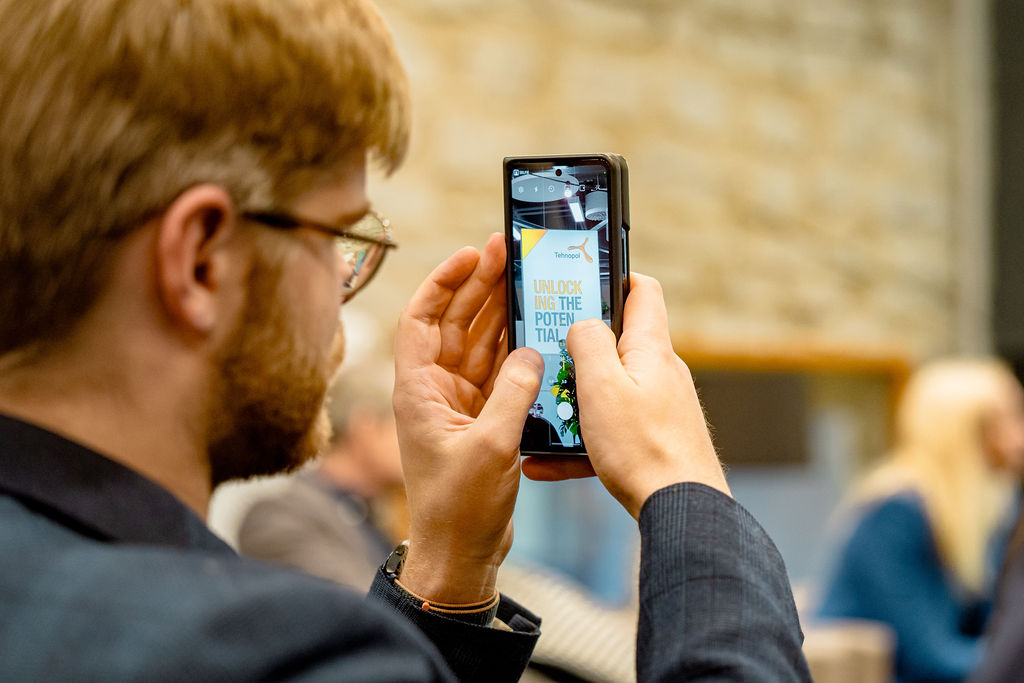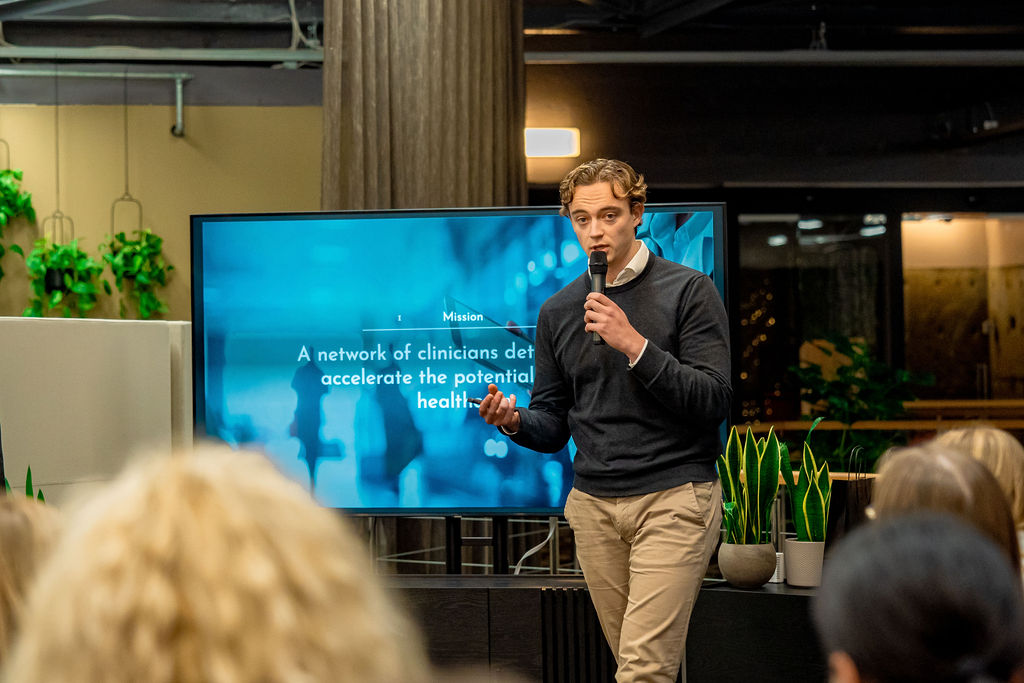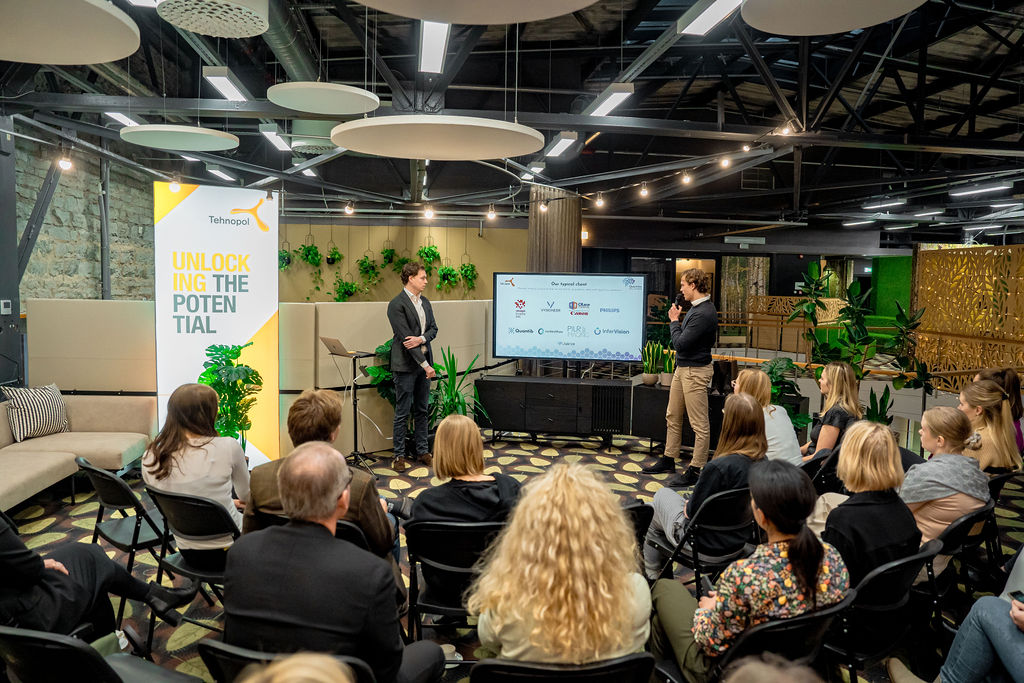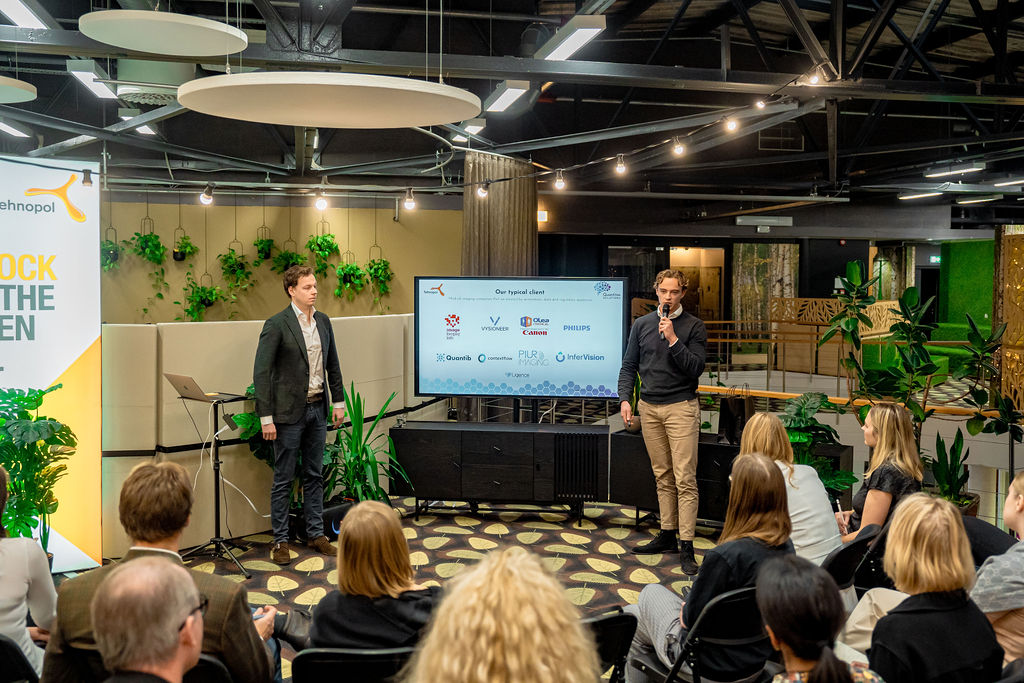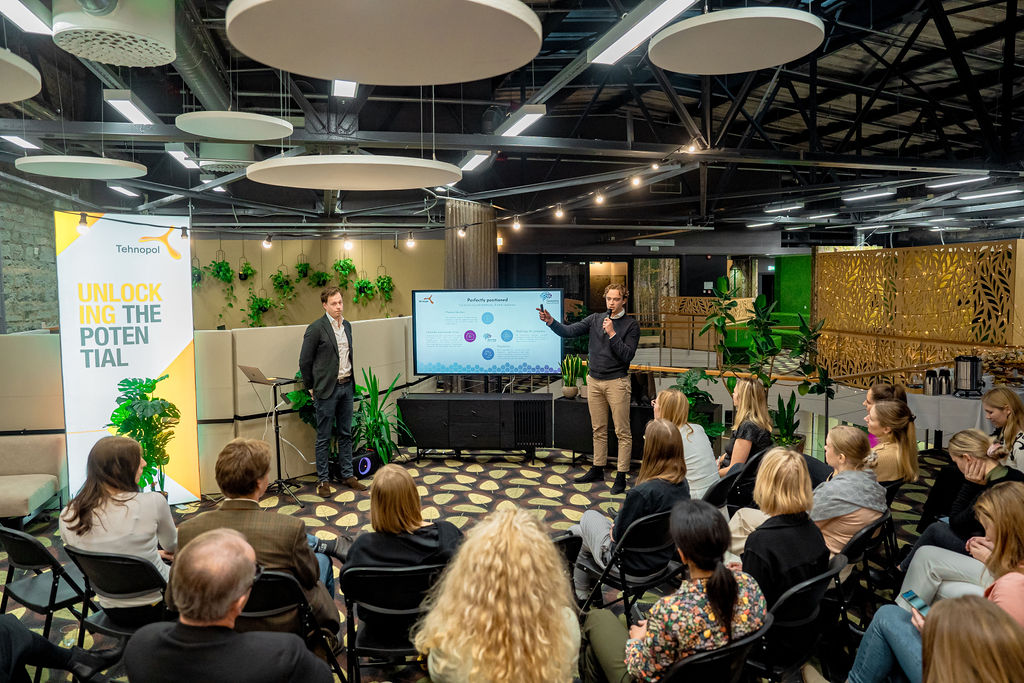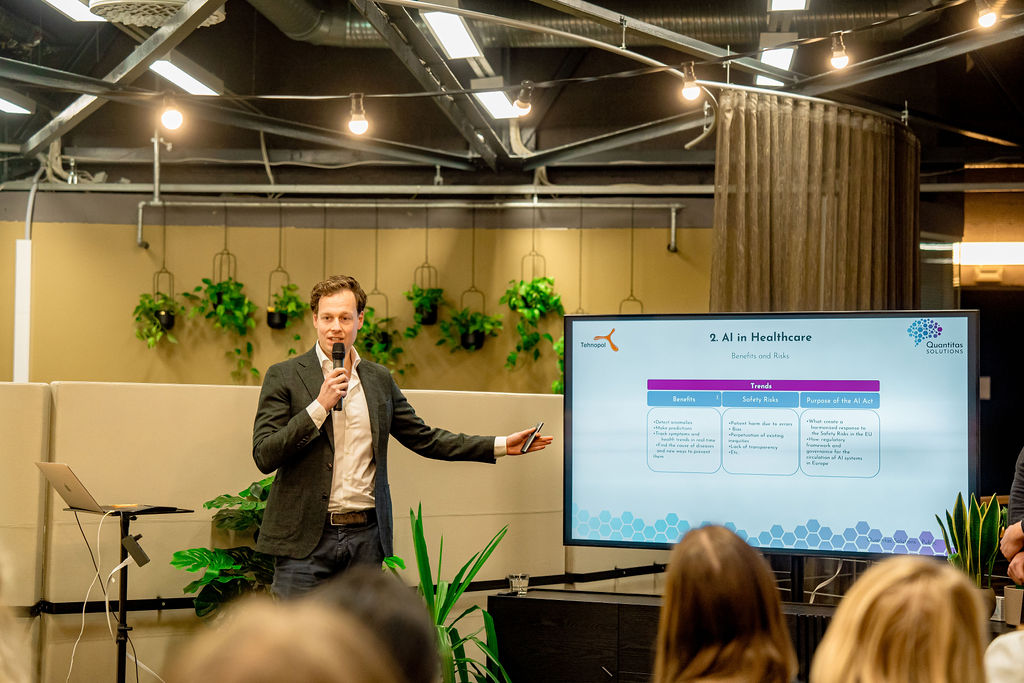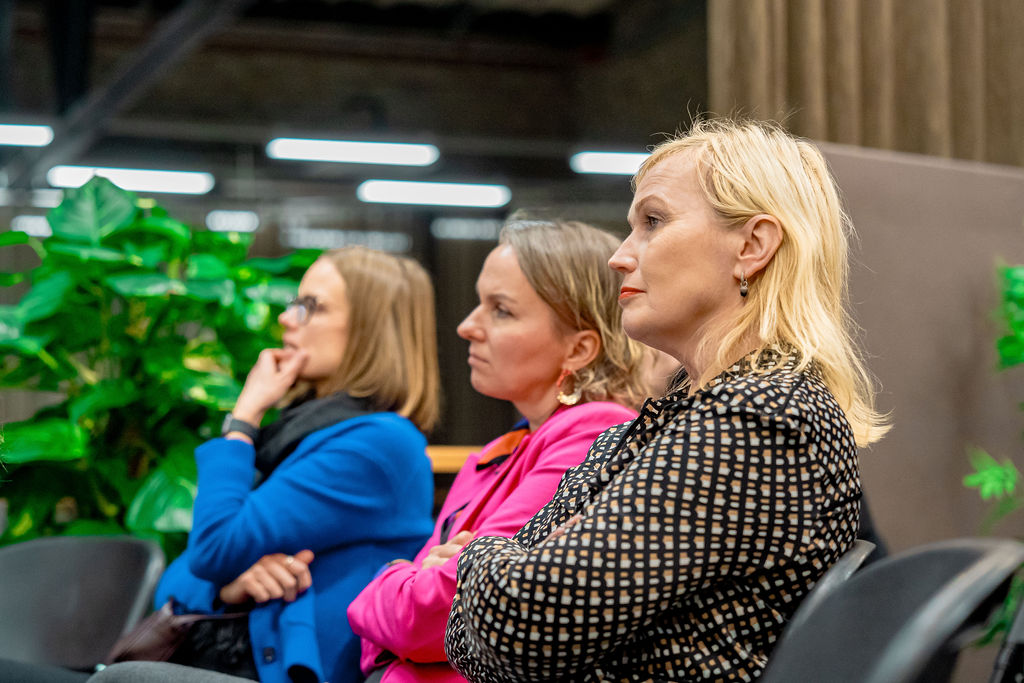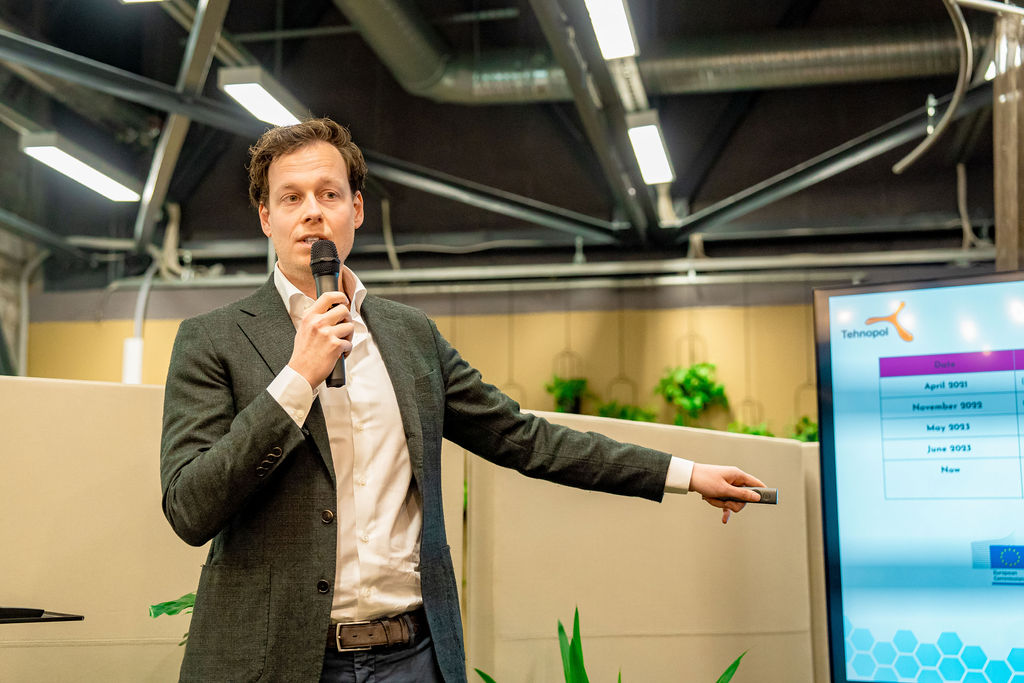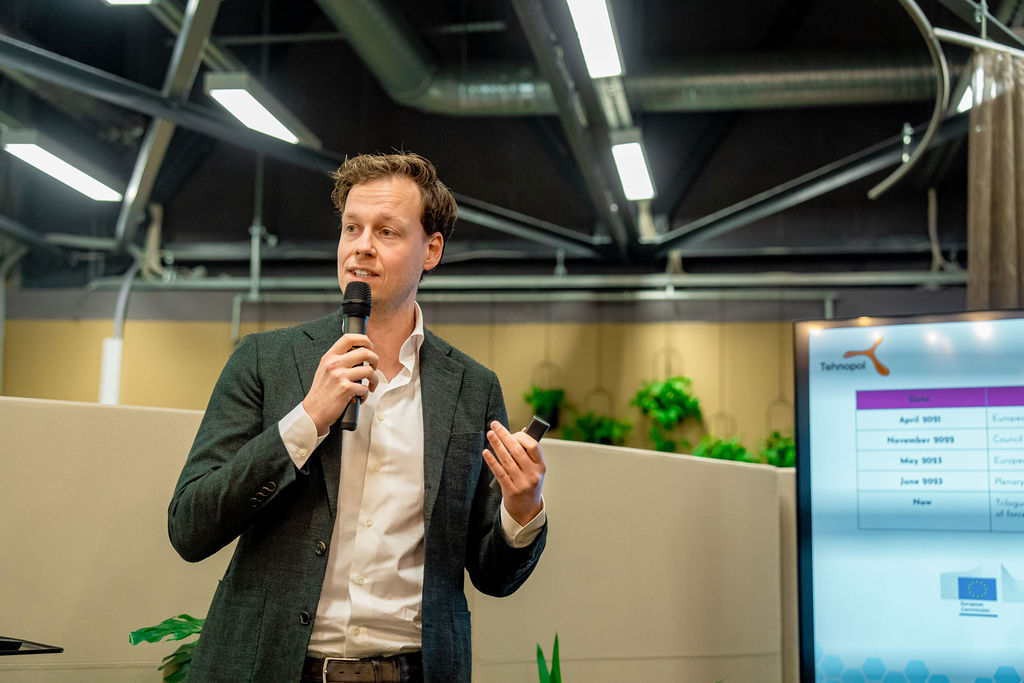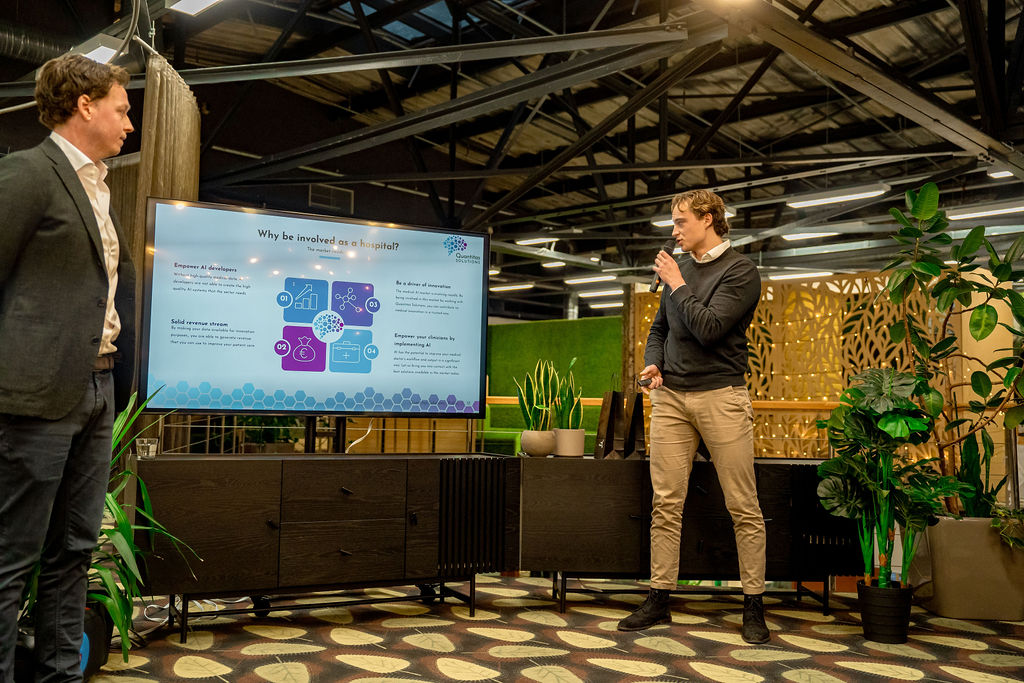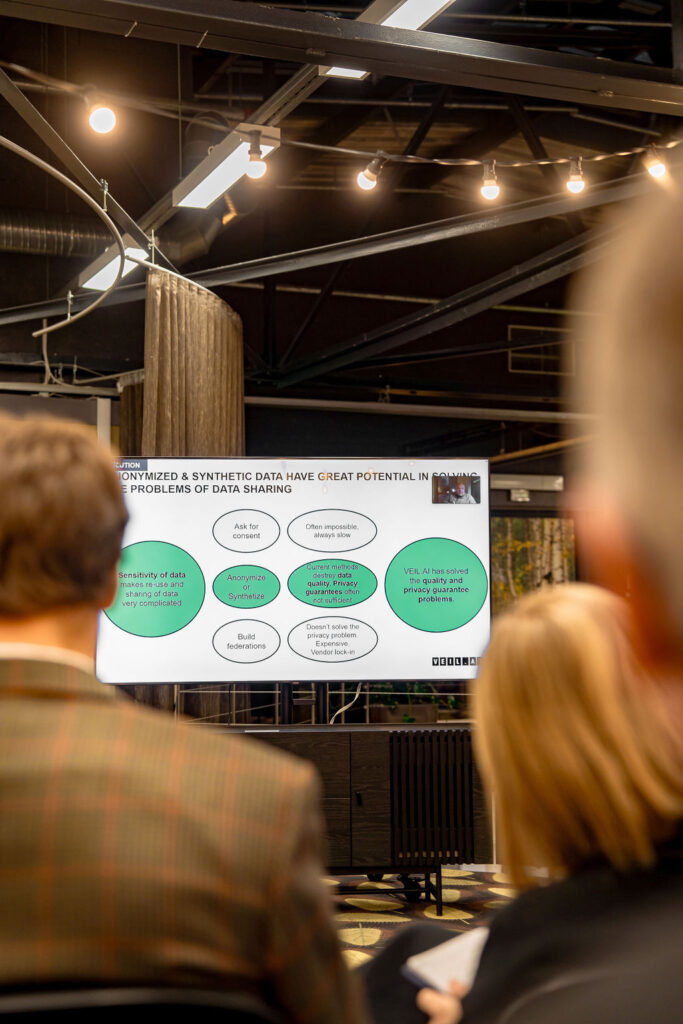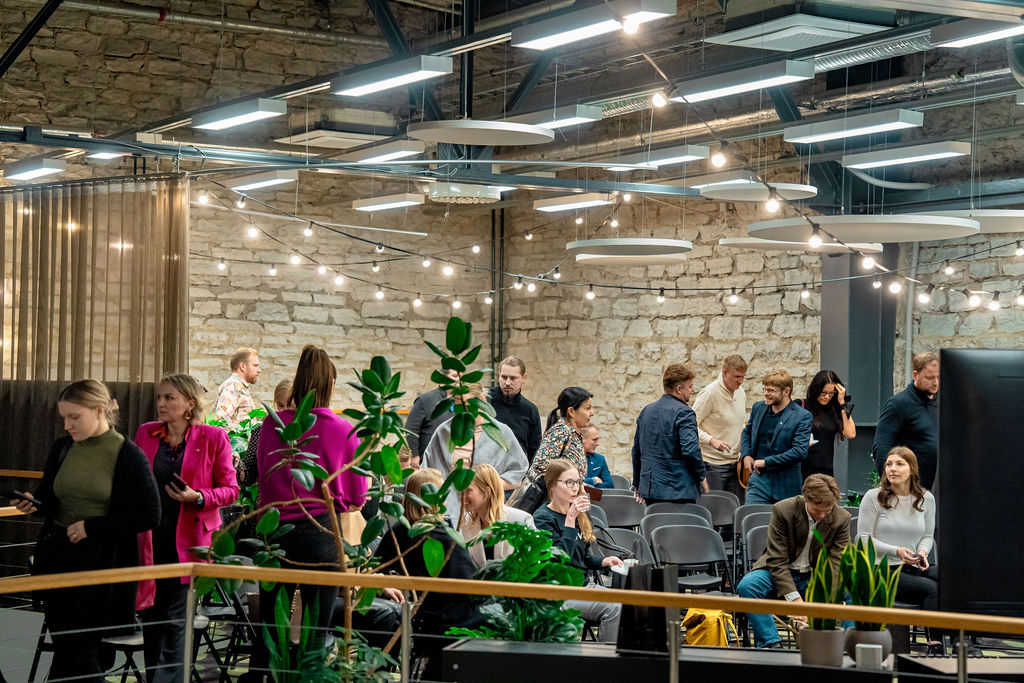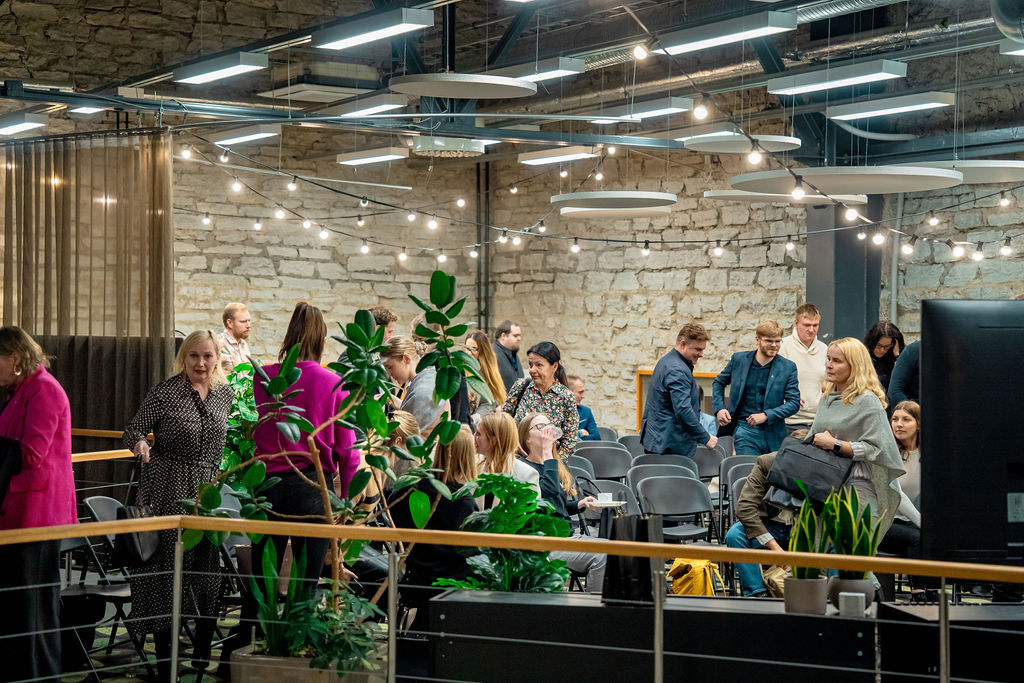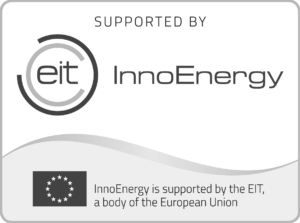07.12.2023
How can AI transform the healthcare sector
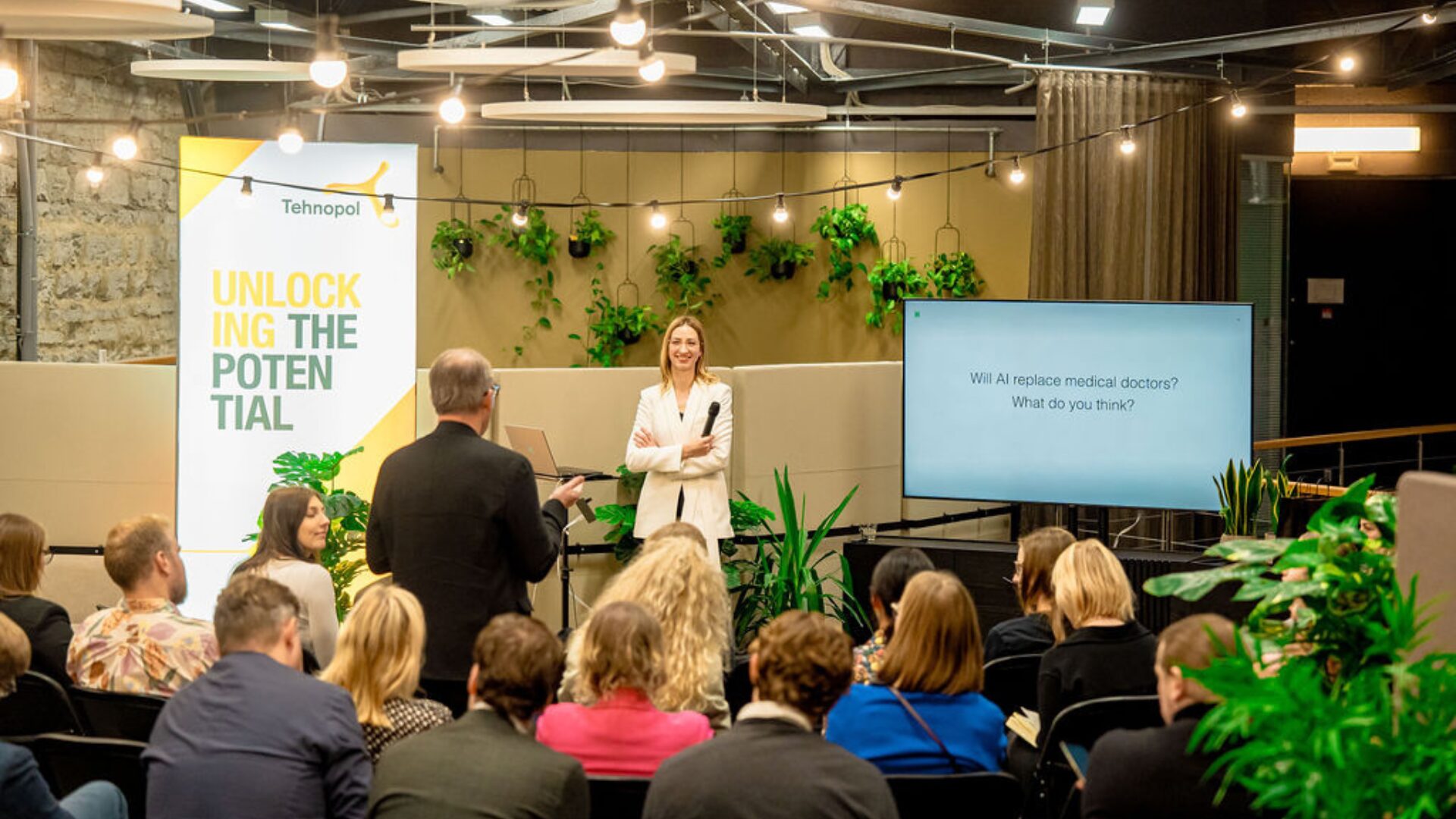
The Tehnopol HealthTech Community gathered on November 29 at Nortal to discuss the future of AI in the healthcare sector. Nortal is a fast-growing, impact-driven global company and a strategic partner for healthcare institutions, governments, leading businesses, and Fortune 500 companies. And lucky for us – a member of Tehnopol HealthTech Community. We share the same mindset with Nortal, in supporting businesses, governments and organizations in building world-changing solutions with the use of right technologies.
The future hospital information system
Kertti Merimaa, the Product Manager at Nortal, kicked off the event and spoke about Nortal’s vision of the future of the hospital information system. She said that the solution must provide help in maximising the actual workloads, it should help in data-driven decision making in hospital management to use their resources in a reasonable way, and it must help to increase the quality of care.
Kertti Merimaa highlighted three trends of 2024:
- Patient-centred care provision
- Rise of the remote services
- Data (being the new oil)
Patient-centred care provision
The hospital system so far has focused very much on the doctors, but the focus will now shift to patients: all the new healthcare services will revolve around the patients. For the information system, this means more personalization. According to Kertti, we will see more personal assistance, dashboards and apps; we will also continue to see the rise of personalised medicine, and we must think how to harvest the data that comes up and how to bring this into the everyday clinical workflows. The hospital information systems will not only provide support for medical professionals, but it will become the new collaboration tool for much more varied specialists (rehabilitation specialists, social care specialists, etc), who need to be in the same information field.
Remote services
The hospital information system needs to help or provide support for all these services that have changed their location. This can also influence the pre-triage systems – how can we optimize this kind of digital-first solutions; how to mitigate the risks of the digital-first solutions. Or how to make the time spent in hospitals shorter so that people can continue their treatment or care at home. We must think how can the hospital information system help telemonitoring systems.
The data
There’s no arguing that AI runs on data. But if we don’t transport the data into knowledge, then it’s useless. The megatrend concerning data in healthcare is how to make the data help bring the cost down (process automatization – how to reduce the time spent on manual labour in healthcare; the standardization is one of the key challenges – we have tons of data but most of it is not really standardized).
Kertti shared that in her opinion, AI cannot replace medical professionals in healthcare. The studies also agree that teleconsultations, remote services, AI chatbots can be more efficient, give good results, and resolve many challenges, but people still want to see a doctor face-to-face. AI can help increase efficiency and optimize the use of the most valued resources, but they cannot replace people and physical touch.
Examples of AI in healthcare
Otto Mättas, the AI Project Manager at Tehnopol, gave some examples of the possibilities AI has to offer to the healthcare sector. Otto agreed with Kertti that one of AI’s greatest strengths is processing data, and figuring stuff out while using a lot of data. And there is a lot of data in healthcare. He added that integrating AI into our workloads together with our doctors and policymakers can really enhance the future.
Relying on various studies, Otto introduced where AI has already improved the healthcare processes. For instance, AI has shown remarkable potential in aiding the diagnosis of multiple sclerosis by analyzing medical imaging data, such as magnetic resonance imaging (MRI) scans.
He also spoke about personal assistants that are driven by AI. For example, the University of Colorado Healthcare Innovation Centre has created Livi, which is a virtual assistant focused on automated self-service solution that emulates a human assistant and provides data about services and facilities. The second solution he mentioned was a phone app called Symptomate, which is an intelligent tool for symptom assessment.
AI in eHealth
Elena Sügis, the Senior Data Scientist at Nortal, focused on AI use in eHealth. Just like the previous speakers, Elena pointed out that doctors are dealing with massive amounts of data and trying to make sense of it every day. And they are very good in what they do, but why do we need AI then? The reason is that a large amount of doctors’ time is spent on administrative tasks. There’s not enough doctors and the ones that are working, are overloaded with routine tasks. AI can help make their jobs more efficient.
So, in short, AI has the power to:
- Reduce the doctors’ workload
- Improve the accuracy of clinical decisions
- Offer better healthcare in case of shortage of staff
- Adapt and learn all the time from the old data and also from the new added data
Elena gave an example that the majority of medical texts are free form texts. AI-based systems could potentially help doctors to summarise these texts, find information more easily, categorise it better, etc.
She also introduced Nortal Tark, a solution based on large language models. Nortal Tark helps to connect various systems and use only your documents which might also include delicate data that you cannot share with ChatGPT. You can ask the system questions and it will provide answers only based on your documents (for example a collection of patient epicrisis). It also helps to generate new documents using the information in other documents. Nortal Tark includes chatbot for chats, it can recall previous conversations and uses various languages. One of the main benefits is that you can ask your questions in a human manner, and not use keyword search.
Empowering AI-driven healthcare
Lucas Zielstra, the Business Development Manager, and Wiebe Zwaan, the Director of Regulatory Affairs at Quantitas Solutions, introduced their company and what they do in regards to AI in healthcare.
Quantitas Solution has a network of clinicians determined to accelerate the potential of AI in healthcare. They focus on radiology and help medical imaging companies in these four areas:
- Help AI developers improve their products;
- offer high quality medical annotations;
- use high quality medical data;
- focus on the regulatory and implementation aspects;
Talking about the power of Quantitas Solutions – all the expertise needed to perform these tasks is in-house. They also help to introduce these products to hospitals and support in implementation phase.
Next generation anonymization of sensitive health data – experiences from Finland
Tuomo Pentikäinen, the CEO of VEIL.AI, concluded the data workshop. When talking about his company VEIL.AI, he said that data is the enabler and driver of the next breakthroughs in medicine and healthcare. VEIL.AI has reinvented anonymization in a way that solves access to data and data quality problems. This revolutionizes how data intensive medical and healthcare research and operations will be made.
VEIL.AI has developed and patented a game-changing AI-based technology that unleashes the power of data. It’s called the VEIL.AI Anonymization Engine – it creates extremely high-quality record-level anonymized and synthetic data.
One of the collaborations Tuomo mentioned was with the multinational pharmaceutical and biotechnology company Bayer. Bayer wanted to improve their global drug research processes to speed up clinical trials, reduce costs and increase patient safety. VEIL.AI provided the next-generation technology for data anonymization and synthetic data generation. The results proved that VEIL.AI’s anonymized data was as reliable as the original data.





